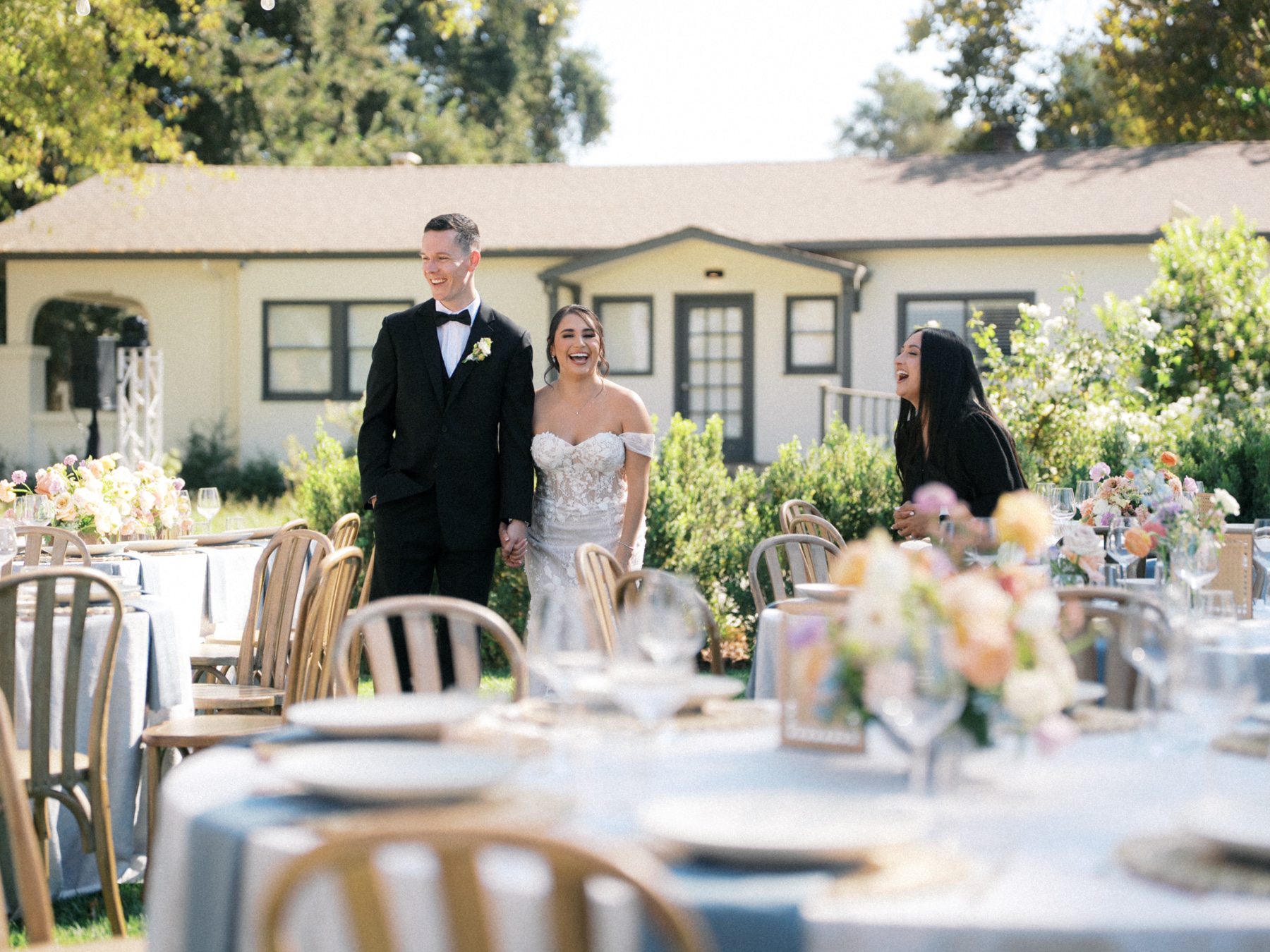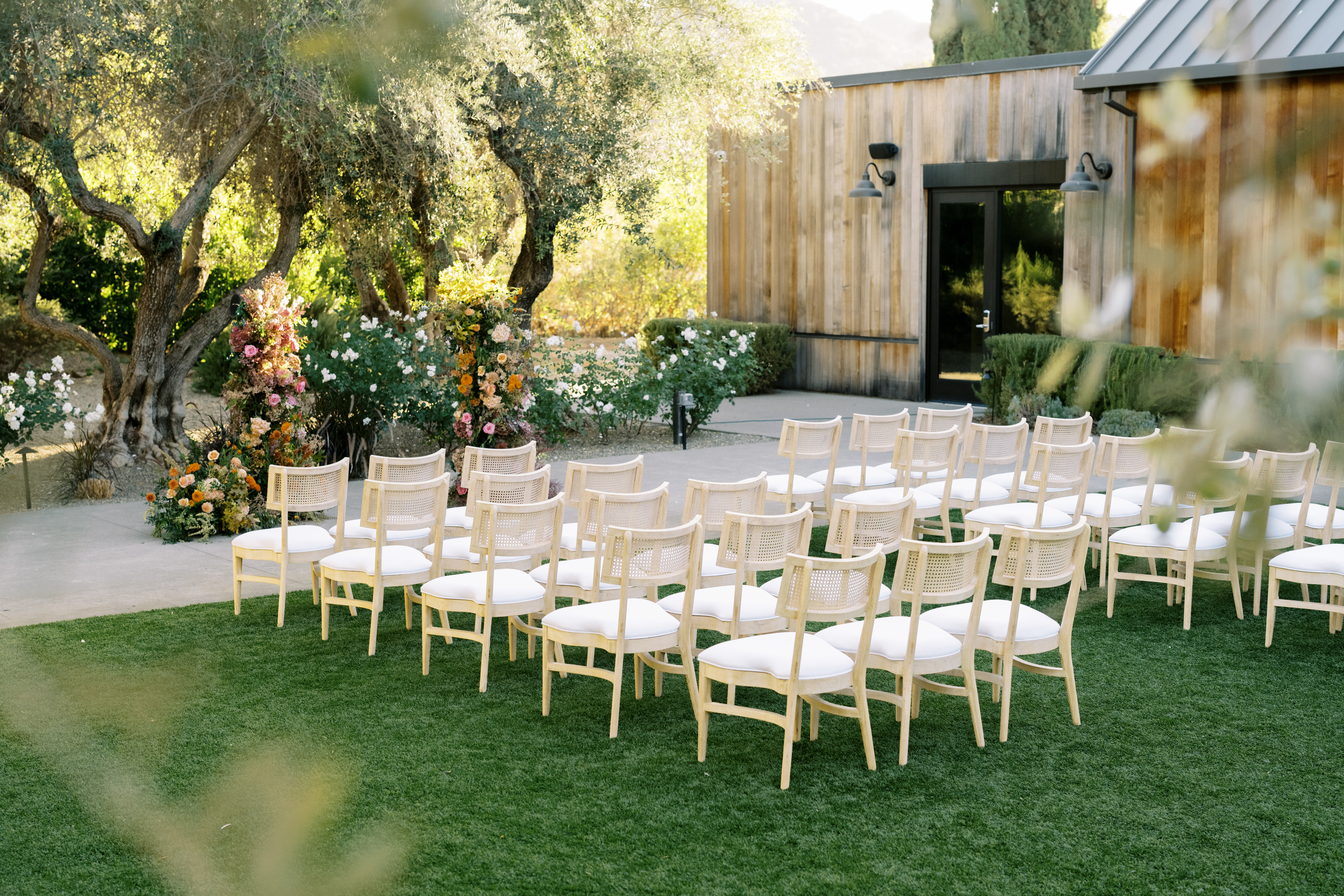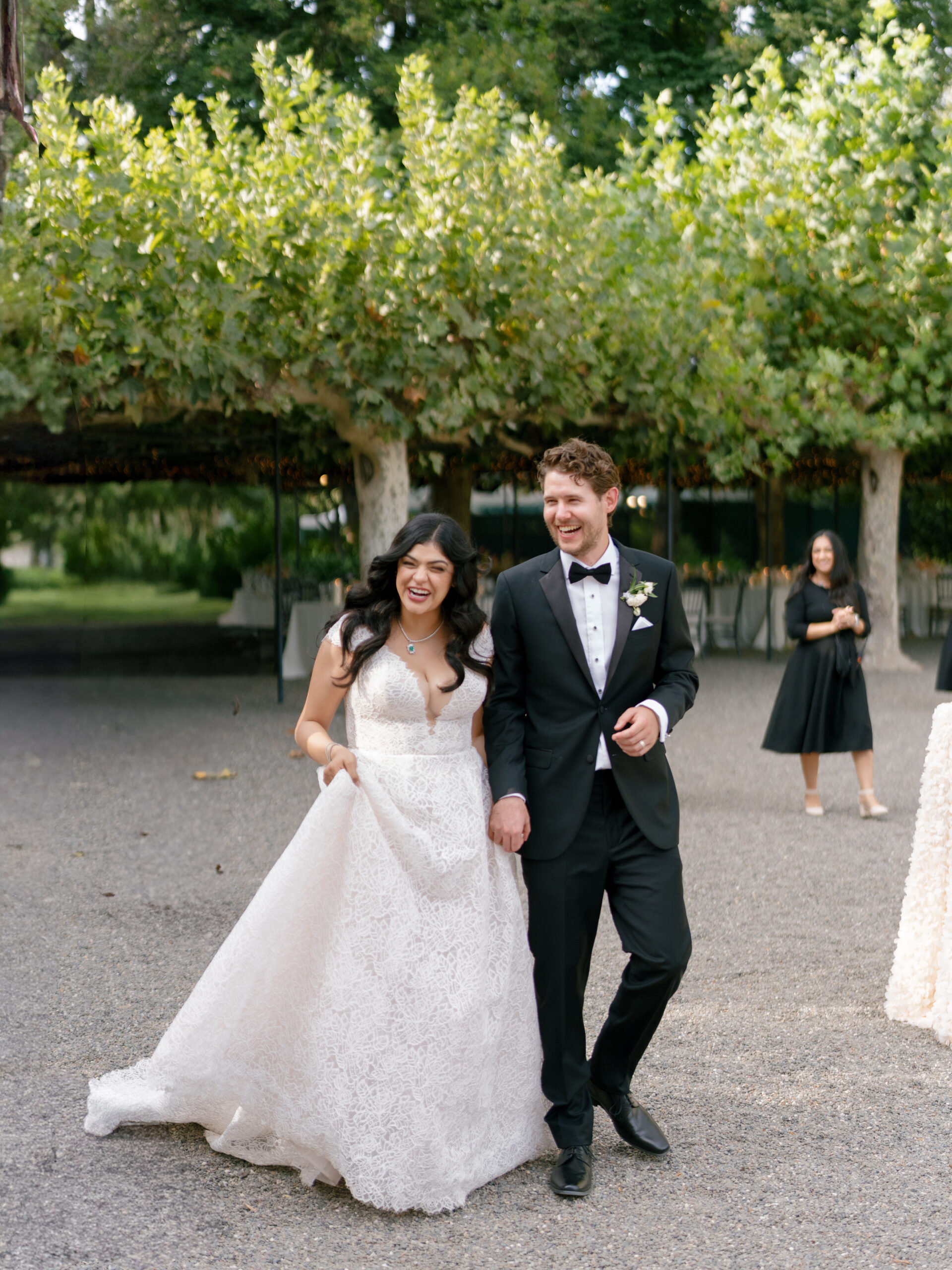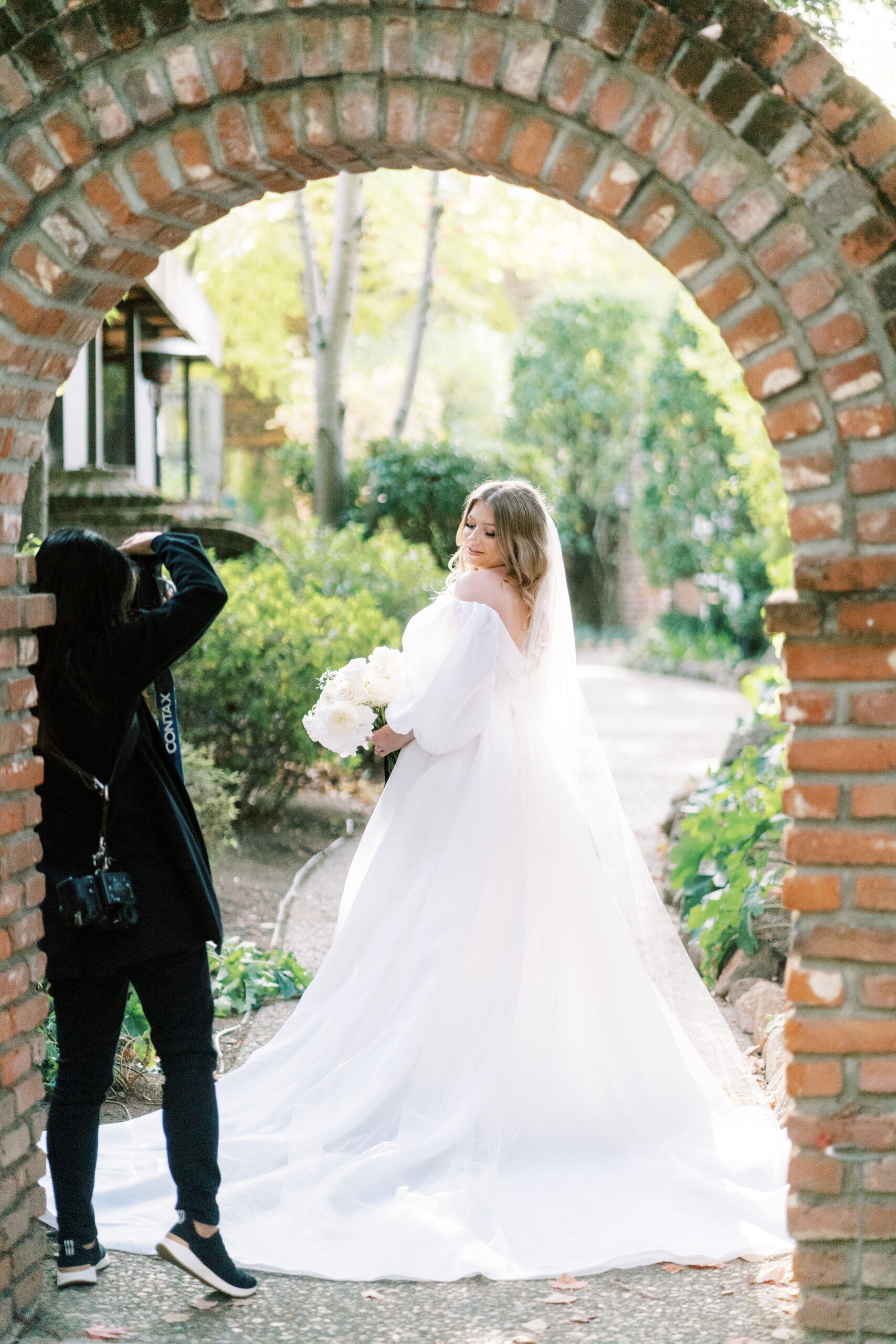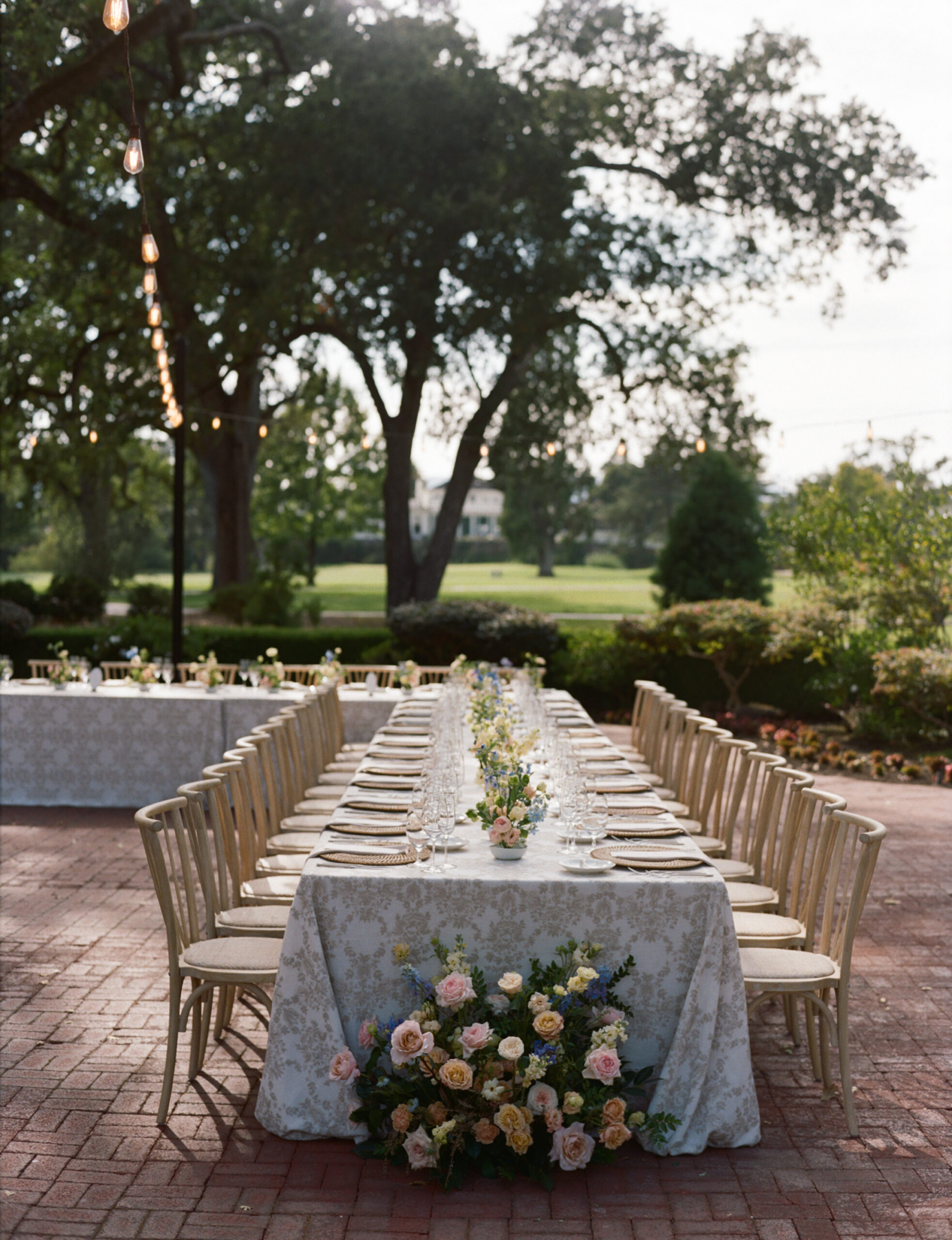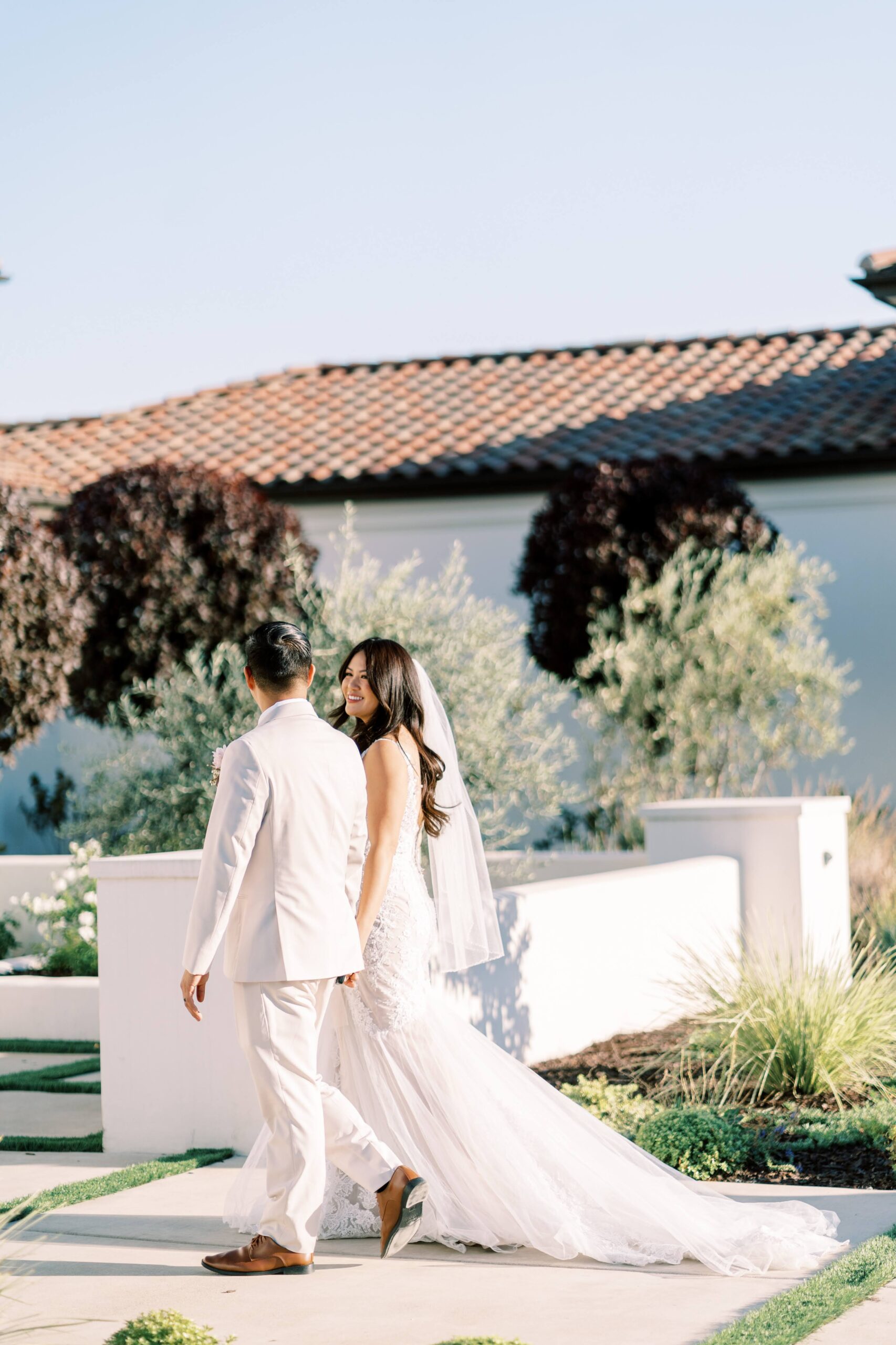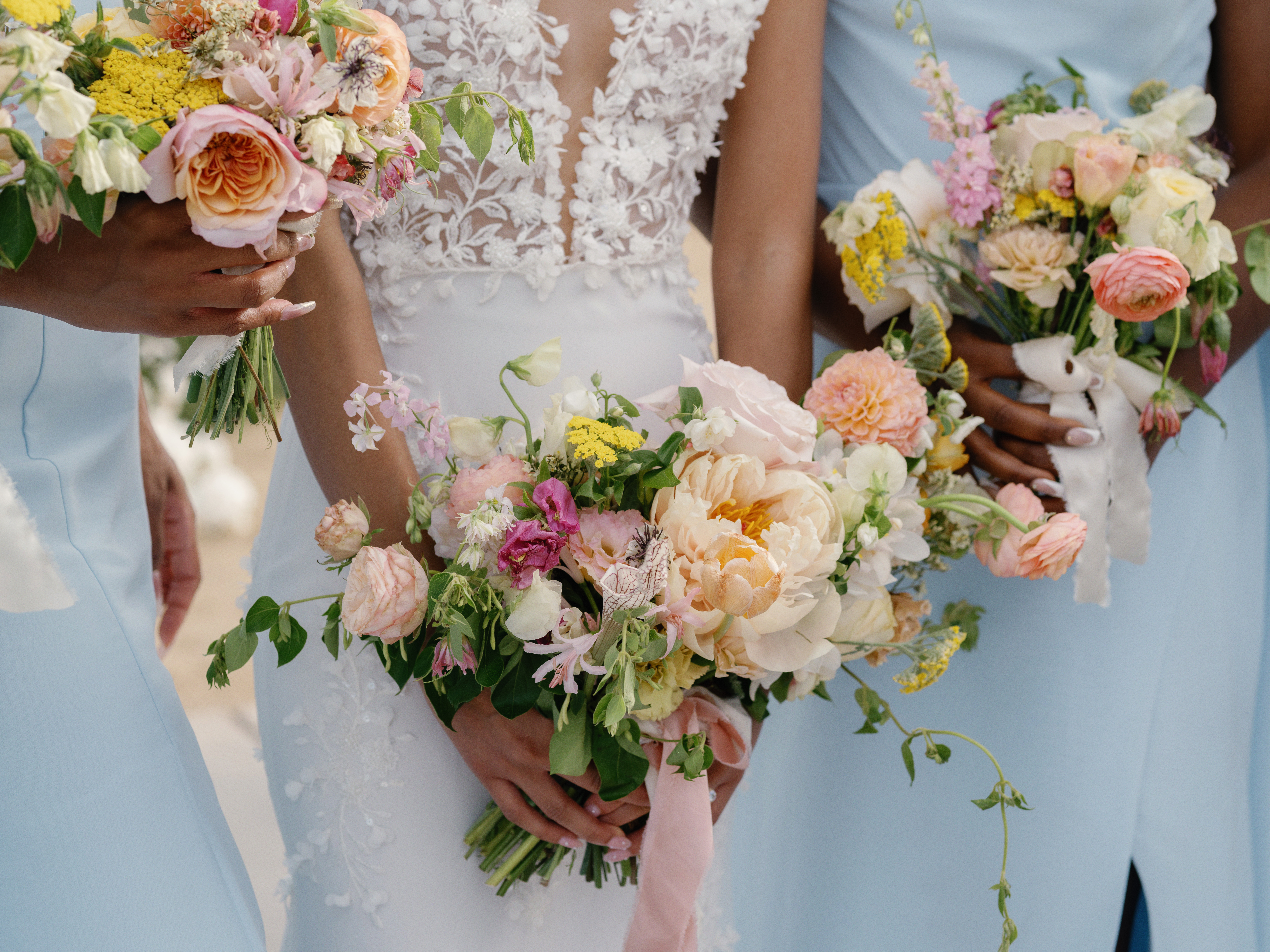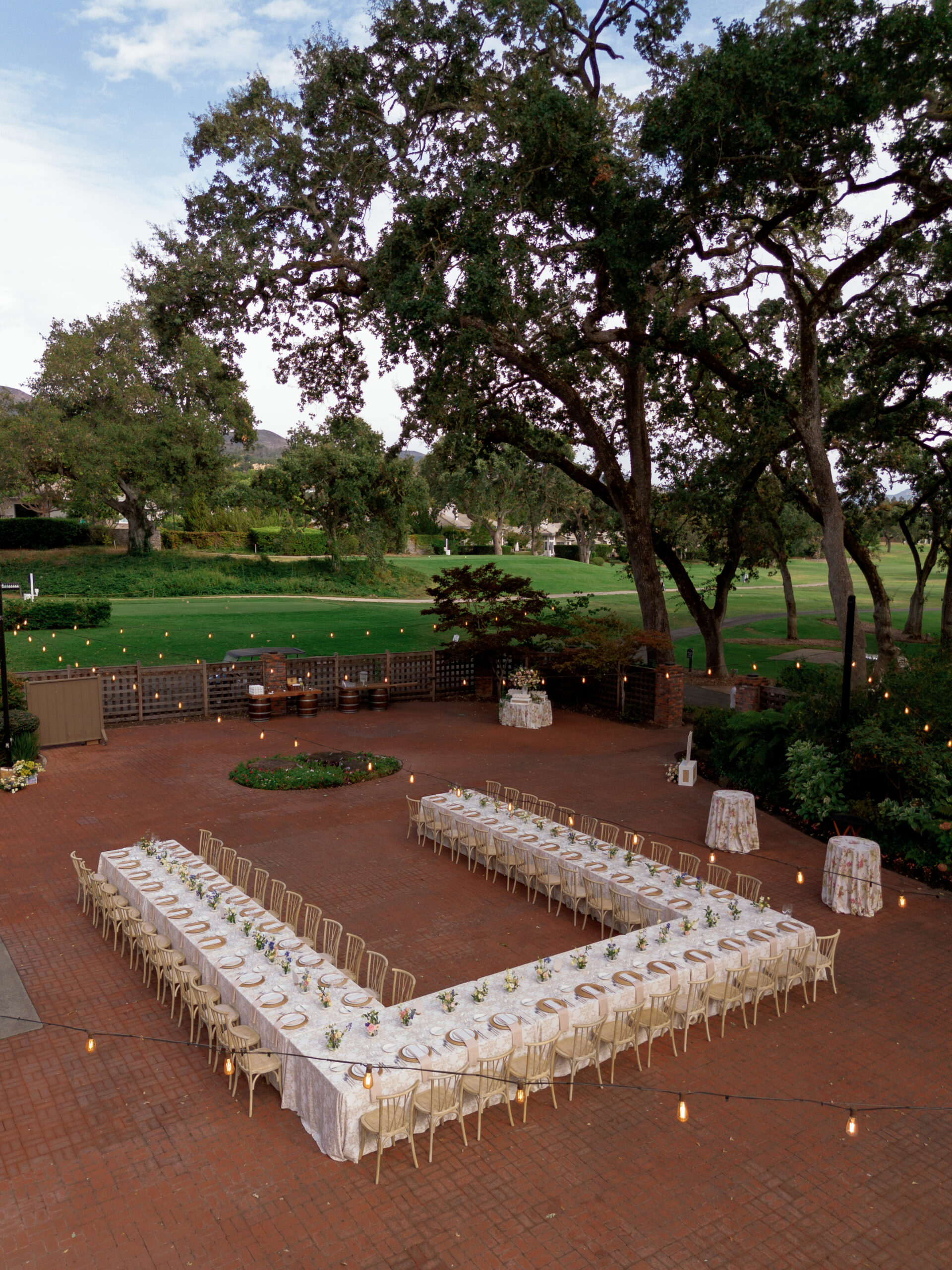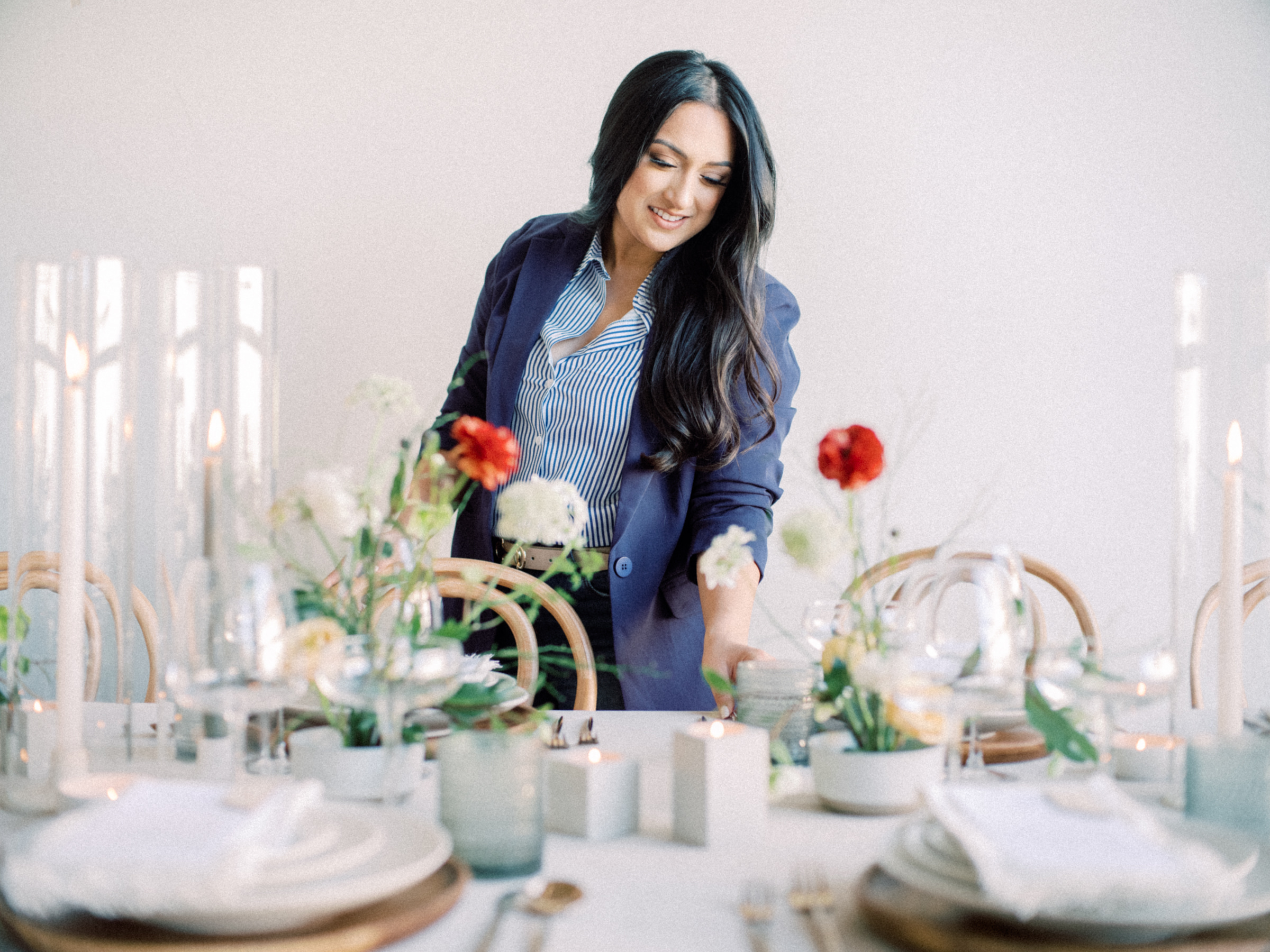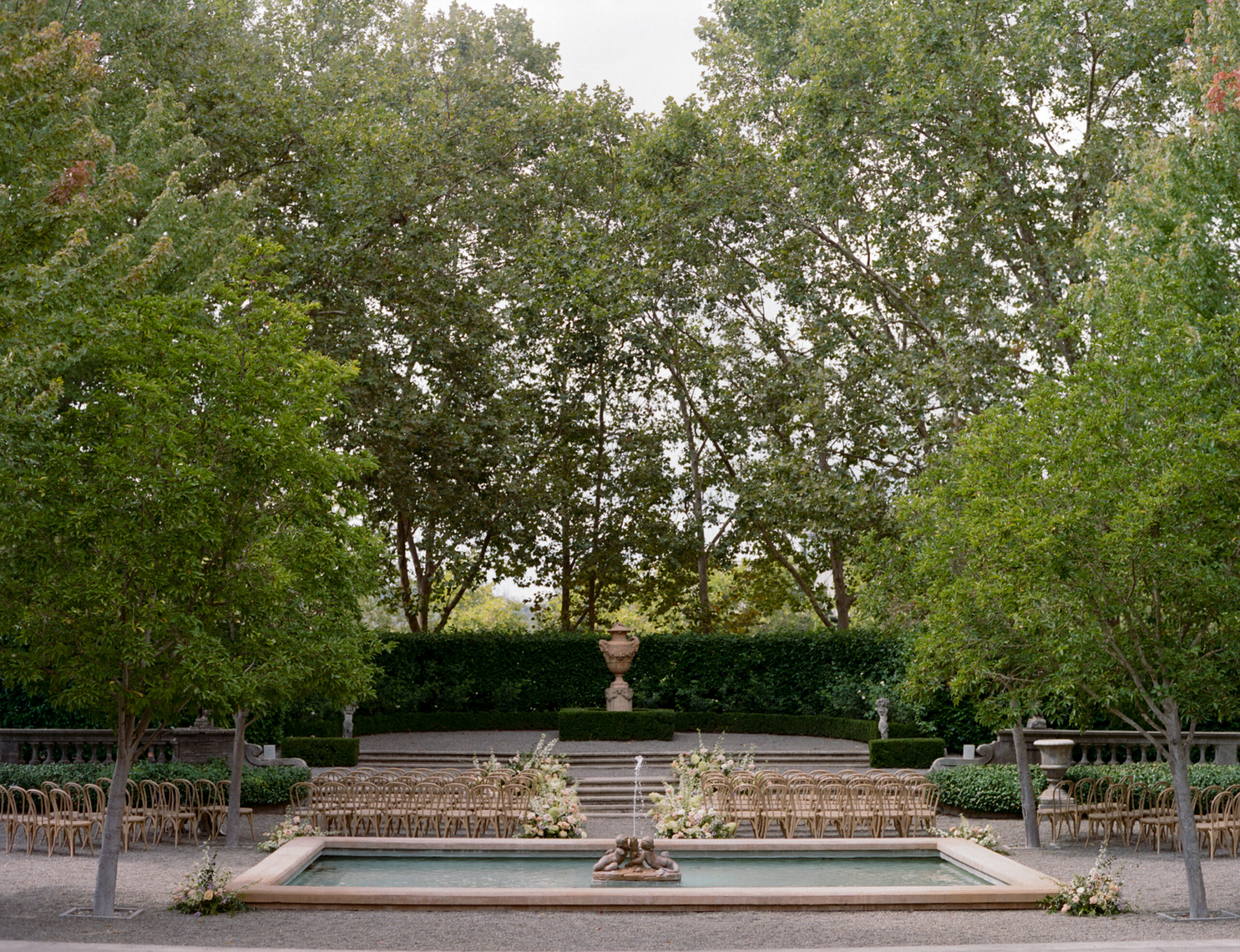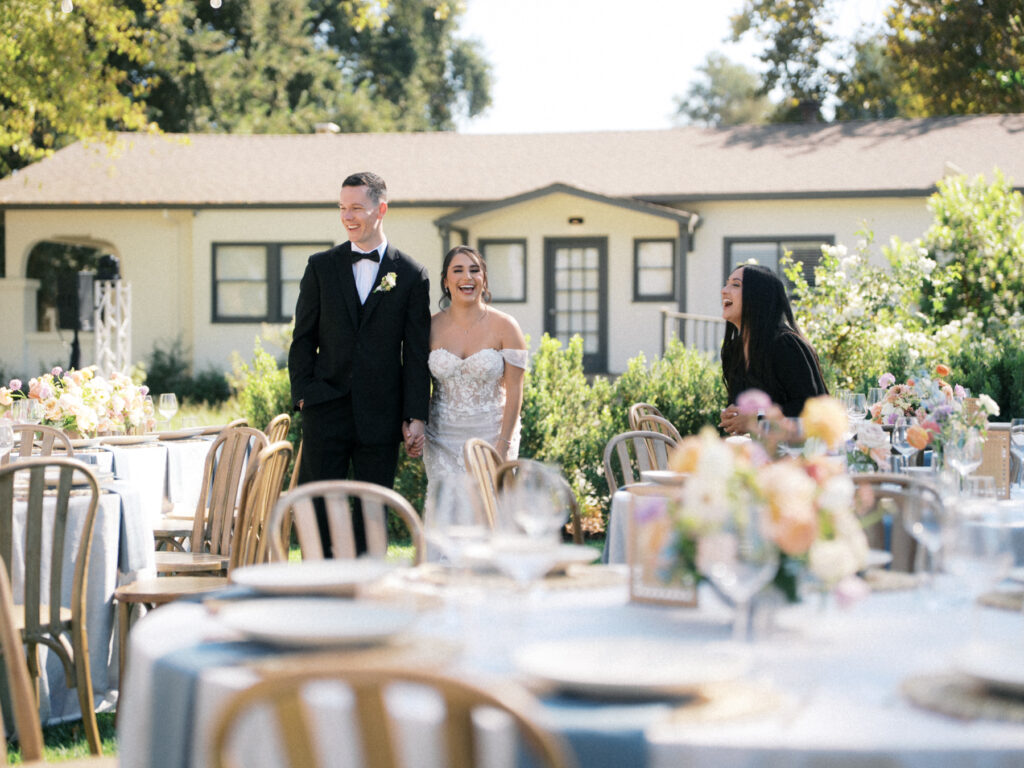
A new year naturally invites reflection, clarity, and forward momentum — and if you’re recently engaged or beginning to think about a 2027 wedding, this is the perfect moment to approach planning with intention rather than urgency.
From a high-touch planning perspective, the most successful weddings are never rushed or pieced together. They’re built thoughtfully, step by step, with a clear understanding of priorities, resources, and the experience you want to create for yourselves and your guests.
Here’s how to begin the journey the right way.
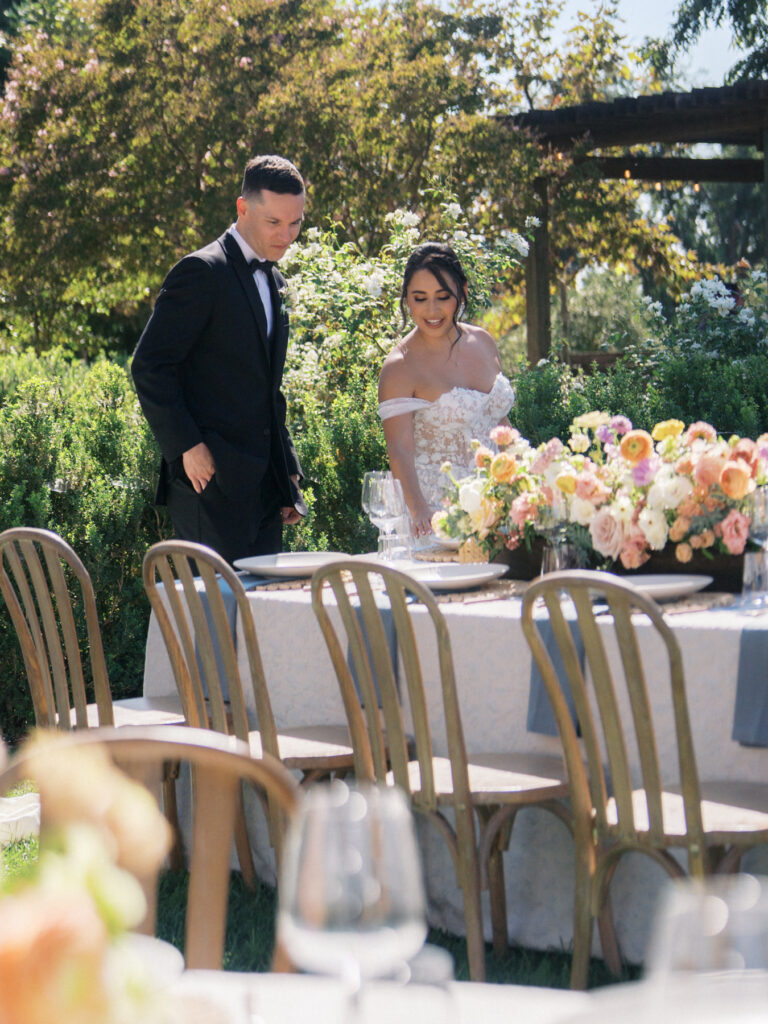
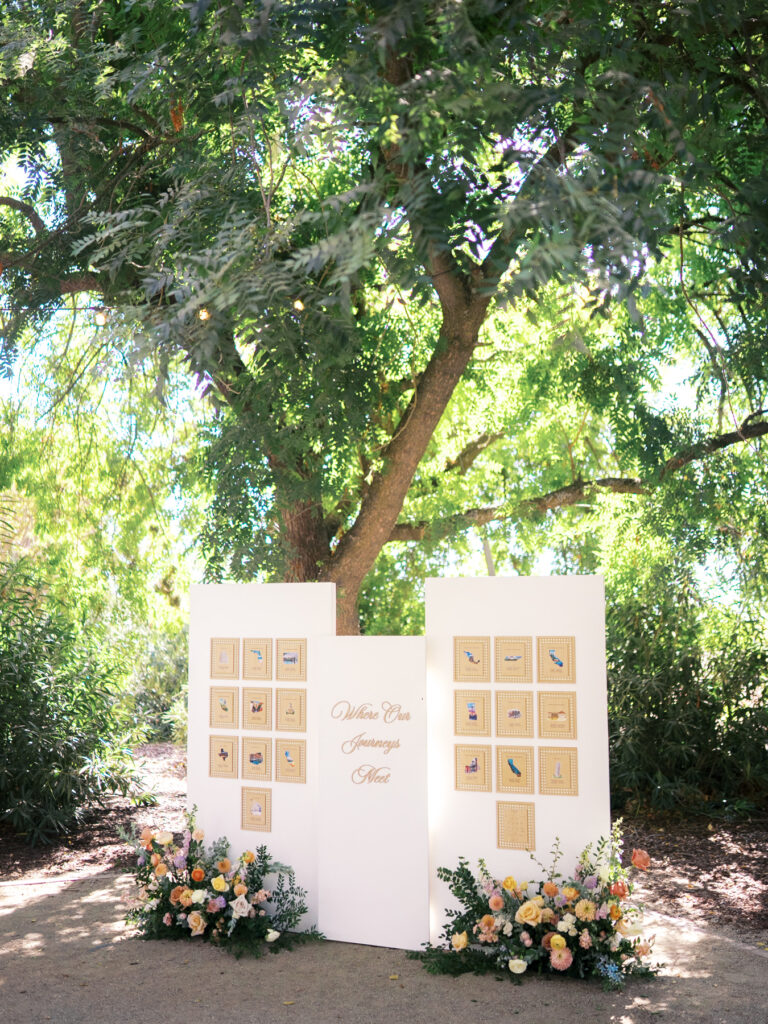
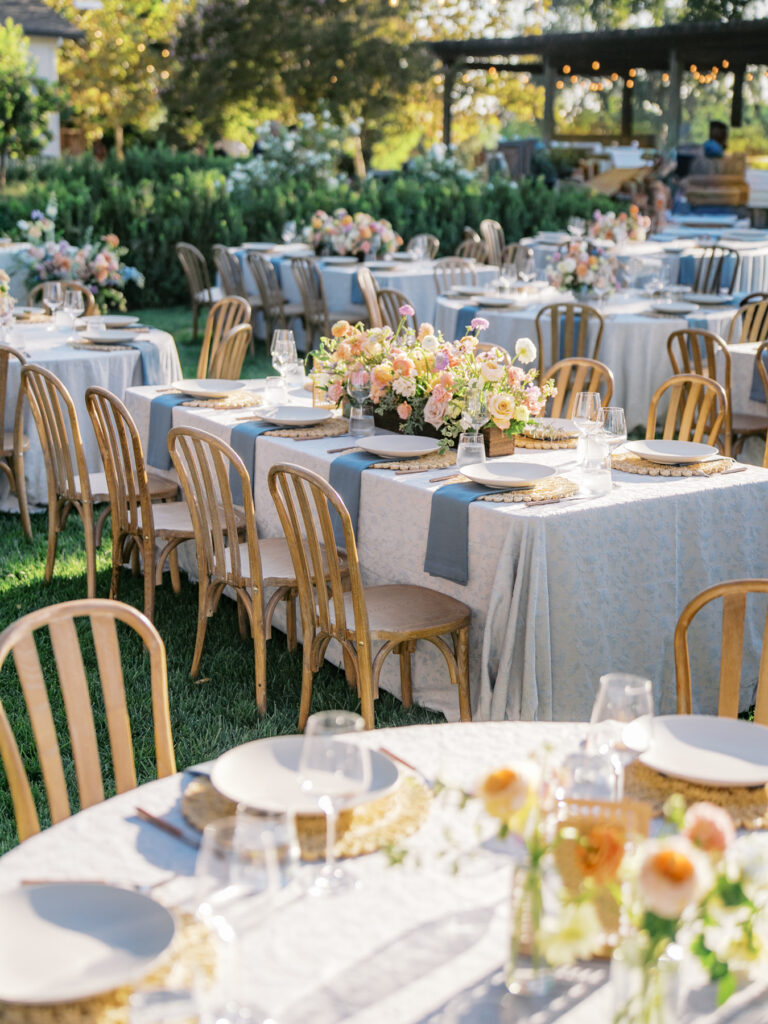
Start With the Right Partner: Hire Your Planner First
Before touring venues, scrolling endlessly on Pinterest, or reaching out to vendors, your first and most important investment should be a professional wedding planner.
A planner is not just there to execute logistics — they are your strategic partner. When brought on early, they help you:
- Define your priorities and non-negotiables
- Establish a realistic overall investment range
- Educate you on what things truly cost (and where flexibility exists)
- Protect you from costly missteps or rushed decisions
- Create a planning timeline that feels calm, not overwhelming
This early guidance sets the tone for every decision that follows and ensures you’re building a wedding that aligns with both your vision and your resources.
Venue Selection Comes Next — With Strategy, Not Guesswork
Once you’ve hired your planner, venue shopping becomes intentional instead of exploratory.
Your planner will help you narrow venues based on:
- Guest count and flow
- Location logistics and accessibility
- Seasonality and weather considerations
- What is included vs. outsourced
- How the venue impacts your overall investment
The venue dictates far more than just location — it influences catering options, rentals, staffing needs, design approach, and even your vendor availability. Touring venues with professional insight ensures you’re selecting a space that supports your vision rather than complicates it.
Build Your Core Vendor Team Early
With your venue secured, it’s time to book your core vendor team — the professionals who shape the foundation of your wedding day.
This typically includes:
- Photographer
- Videographer
- Catering & bar
- Entertainment (band or DJ)
Your planner will guide these selections based on compatibility, experience, and consistency — not just popularity. Booking early for a 2027 date ensures access to teams who align with your expectations and working style, allowing collaboration to unfold naturally over time.
Then — and Only Then — Move Into Design
Design is most impactful when it’s informed by logistics, not rushed by inspiration alone.
Once your planning foundation is solid, your planner can guide you through:
- Overall aesthetic direction
- Color palette and texture
- Layout and spatial flow
- Floral and décor investment strategy
- Guest experience touchpoints
This phase becomes less about trends and more about storytelling — translating who you are as a couple into a cohesive, elevated experience that feels intentional and effortless.
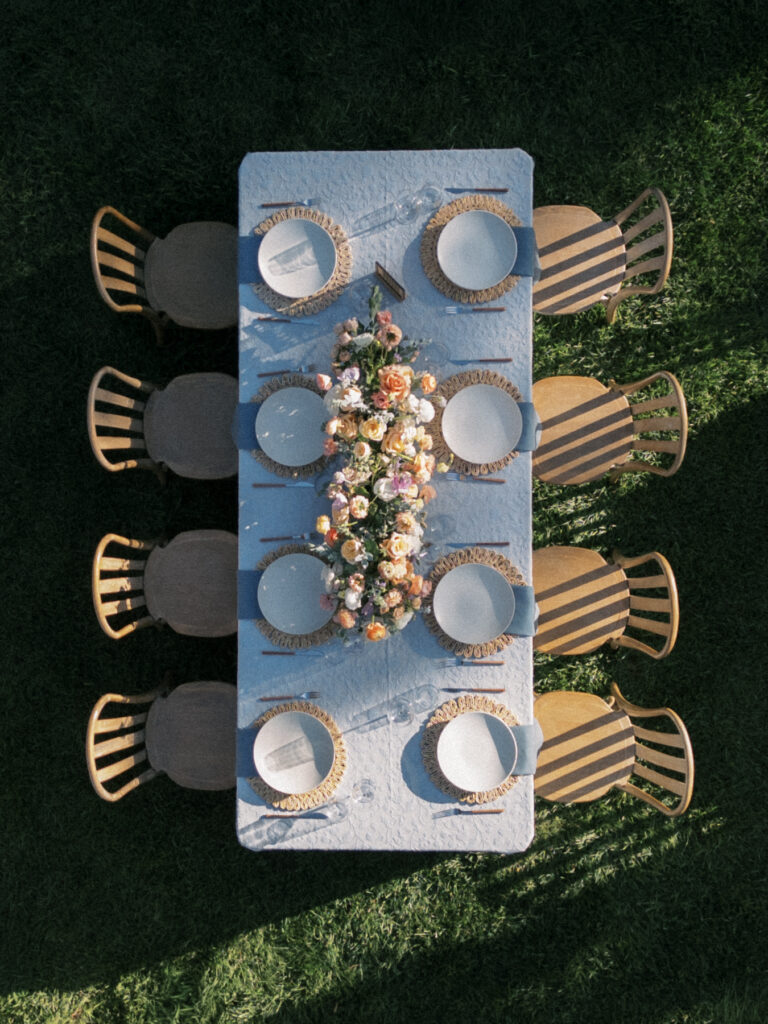
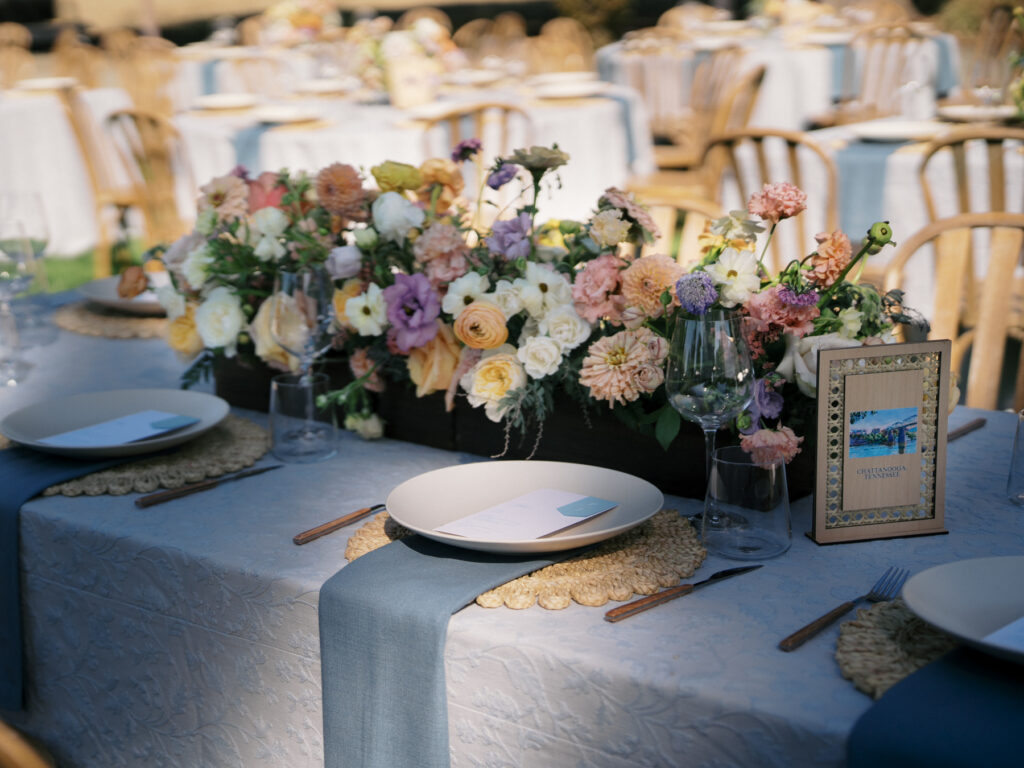
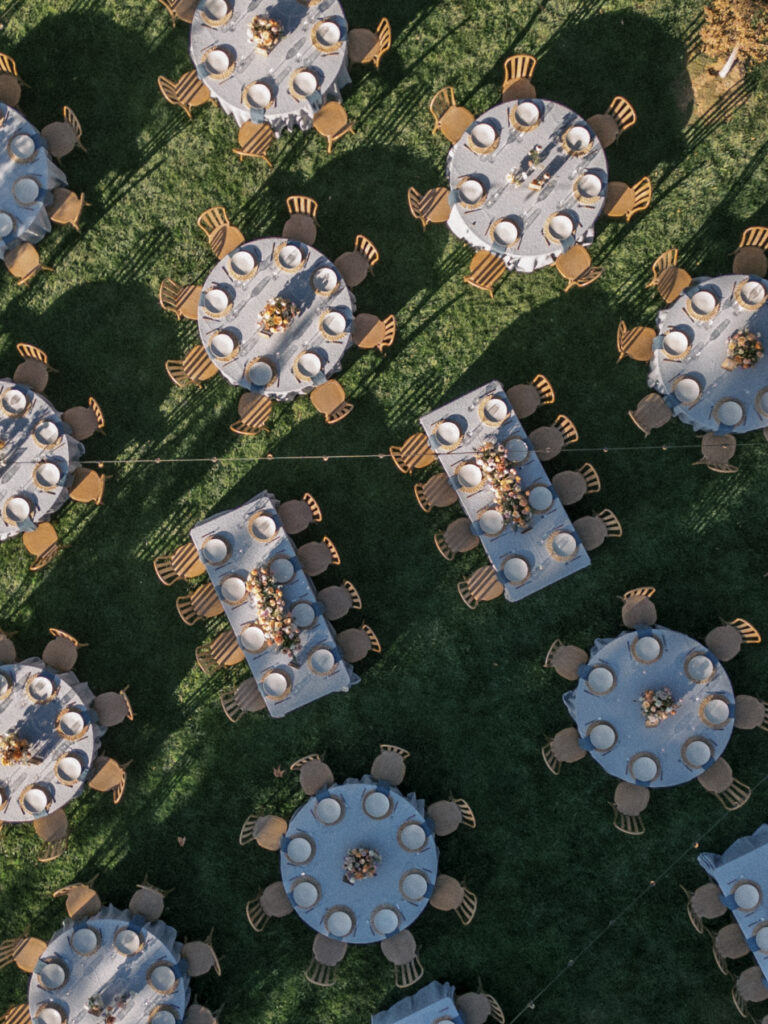
Planning Ahead Is a Gift to Yourselves
Choosing to plan your 2027 wedding now isn’t about being early — it’s about being prepared. It gives you time to make thoughtful decisions, space to enjoy the process, and the confidence that nothing is being rushed or compromised.
The most memorable weddings are never accidental. They’re the result of clarity, collaboration, and trusting the process from the very beginning.
Here’s to a new year — and a beautifully intentional start to what’s ahead. ✨
read this post
As a wedding planner, I’ve seen countless celebrations, and one thing is consistently true: it’s not about spending the most, but about spending smart. When it comes to wedding design, certain elements have a disproportionately large impact, elevating the entire experience for you and your guests. If you’re looking to create a truly memorable and visually stunning day, here are the areas where I always advise my couples to focus their resources, and where you can thoughtfully scale back elsewhere.
The Power of the Perfect Seat: Elevated Chairs
The chairs you choose are not just functional; they are a fundamental part of your aesthetic. Opting for chairs that are a step above standard banquet seating can dramatically change the feel of any event space. Imagine the difference between a plain folding chair and a beautiful natural wood bistro chair, a chic ghost chair, or an elegant upholstered chair. These choices instantly convey a sense of intentionality and sophistication. They become part of the decor themselves, adding texture, color, and a refined touch that permeates the entire room or outdoor setting.
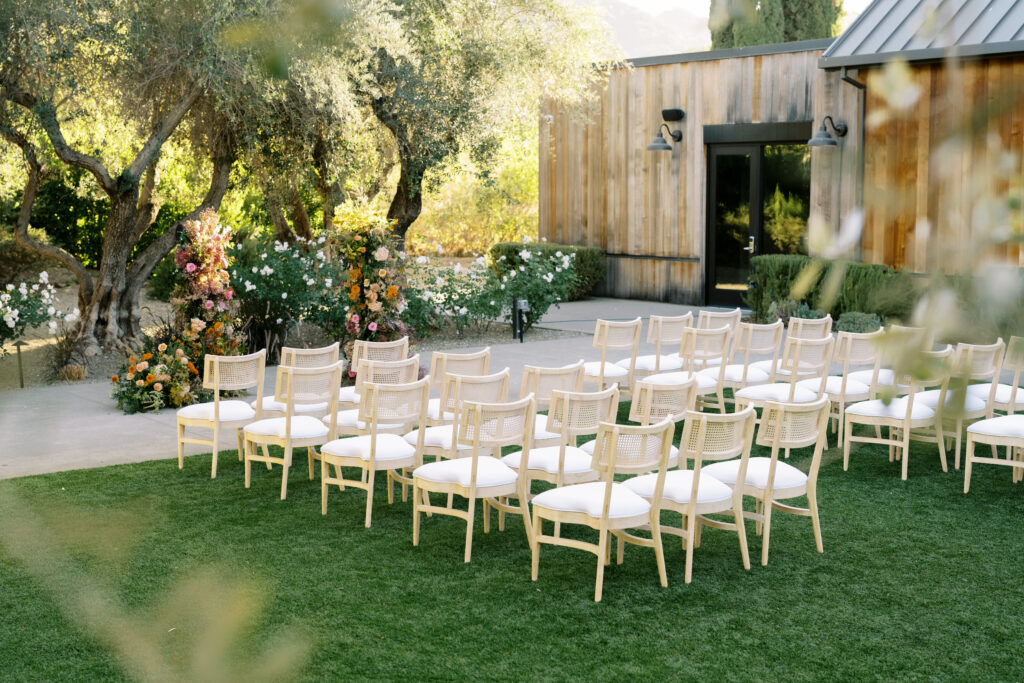
The Foundation of Elegance: Enhanced Linens
Just like chairs, linens cover a vast amount of visual real estate at your event. Moving beyond basic polyester and investing in high-quality, textured, or specialty linens can instantly transform a simple table into a luxurious setting. Think about the rich drape of velvet, the subtle sheen of satin, the rustic charm of raw silk, or intricate patterns. These fabrics add depth, warmth, and a tactile experience that standard linens simply can’t provide. They lay the groundwork for your entire tablescape and truly set the tone for the dining experience.
Strategic Blooms: Prioritizing Floral Moments
While I adore flowers, I always advise my couples to be strategic with their floral budget. Rather than spreading a modest budget thinly across every surface, identify key “floral moments” where a significant impact can be made. This might mean breathtaking ceremony aisle starters that create a grand entrance, a stunning focal point at the head table, or impactful bar arrangements. By concentrating your floral investment in these areas, you create “wow” moments that guests will remember, allowing you to go more minimalist or use more cost-effective greenery in other areas where the visual impact is less critical. This approach ensures maximum visual punch for your investment.
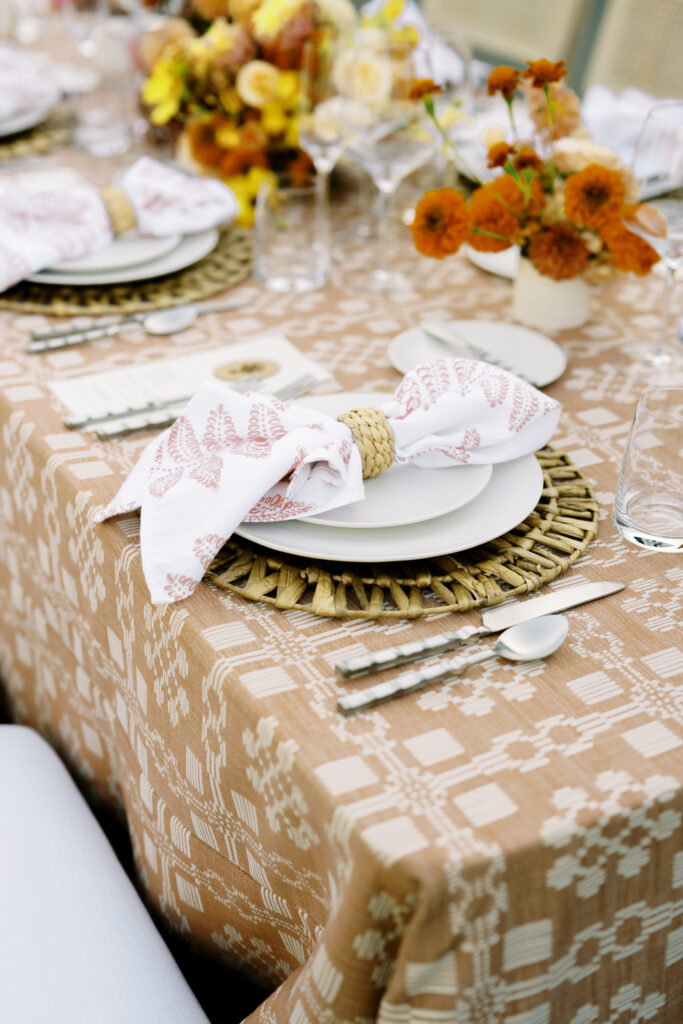
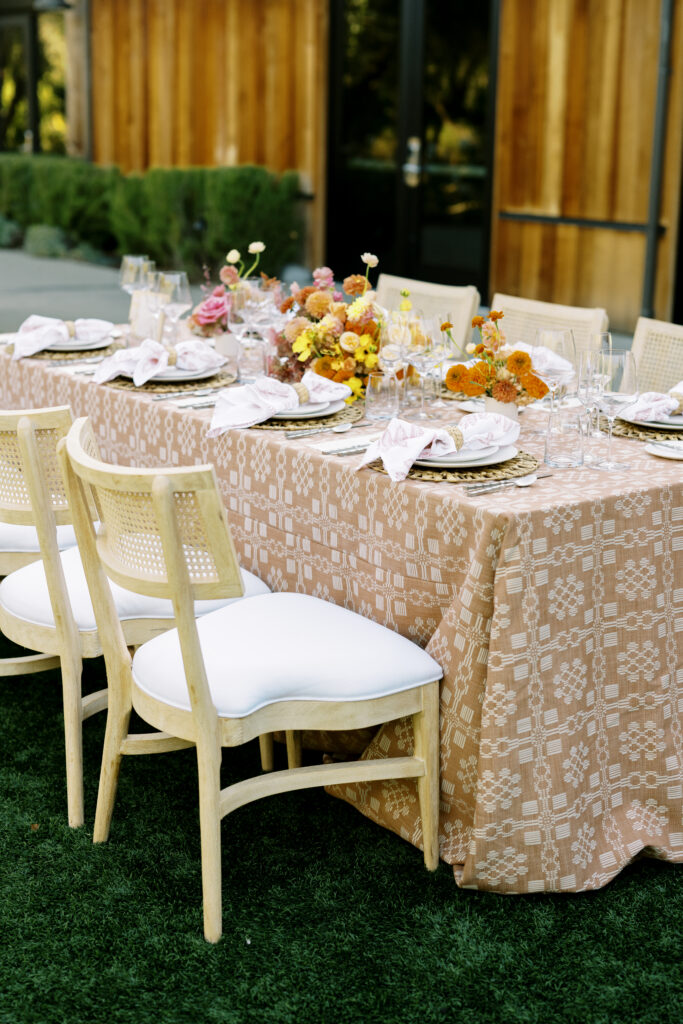
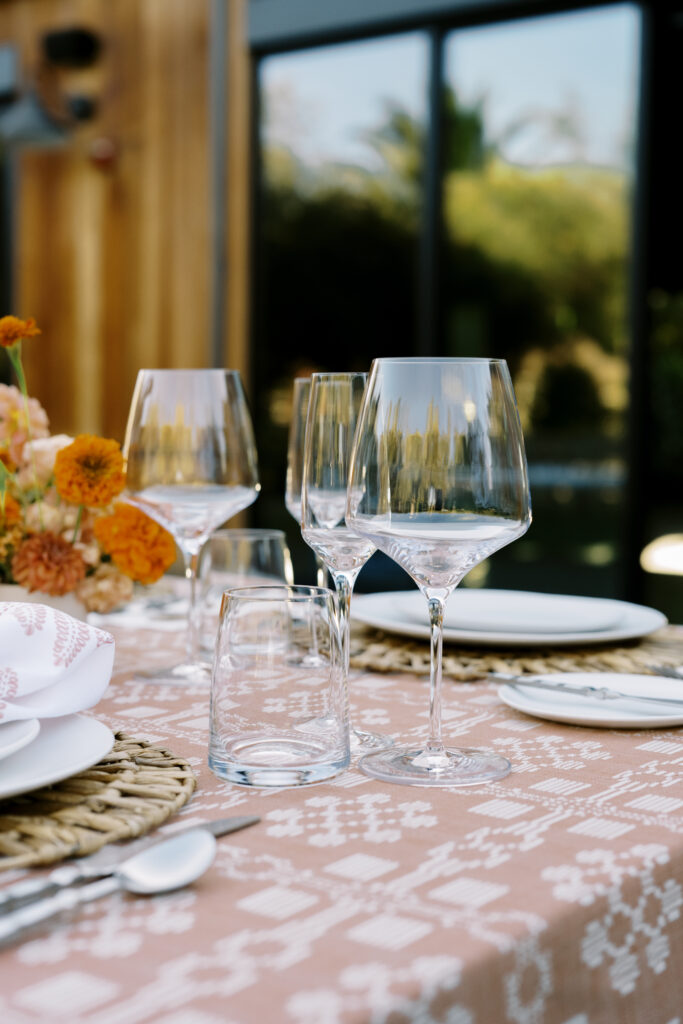
A Thoughtful Welcome: Intentional Guest Seating
The way you guide your guests to their seats for dinner is a prime opportunity to infuse personality and thoughtfulness into your day. Instead of a generic alphabetical list, consider a creative and interactive escort card display, a beautifully calligraphed seating chart that doubles as a piece of art, or even personalized place cards that tie into your theme. This small detail provides a moment of delight and sets the tone for the atmosphere of dinner. It shows your guests that every aspect of their experience has been considered with care.
Where to Scale Back: Smart Savings
Now, for the flip side: where can you potentially save without sacrificing impact?
- Place Settings: While a complete custom place setting can be stunning, you can often achieve an elegant look with standard dinnerware from your caterer and focus on thoughtful linen and centerpiece choices.
- Large/Elaborate Centerpieces: While beautiful, grand centerpieces on every table can quickly consume a large portion of your budget. Consider a mix of high and low arrangements, or opt for smaller, elegant designs and minimal greenery or bud vases on some tables.
- Customized Stationery: While your invitations set the tone, you can often find beautiful and impactful digital options or simpler print designs for day-of stationery like menus and programs, rather than fully customized suites for every element.
- Favors: Many guests either forget or leave favors behind. Consider edible treats that can be enjoyed immediately or forgo them altogether.
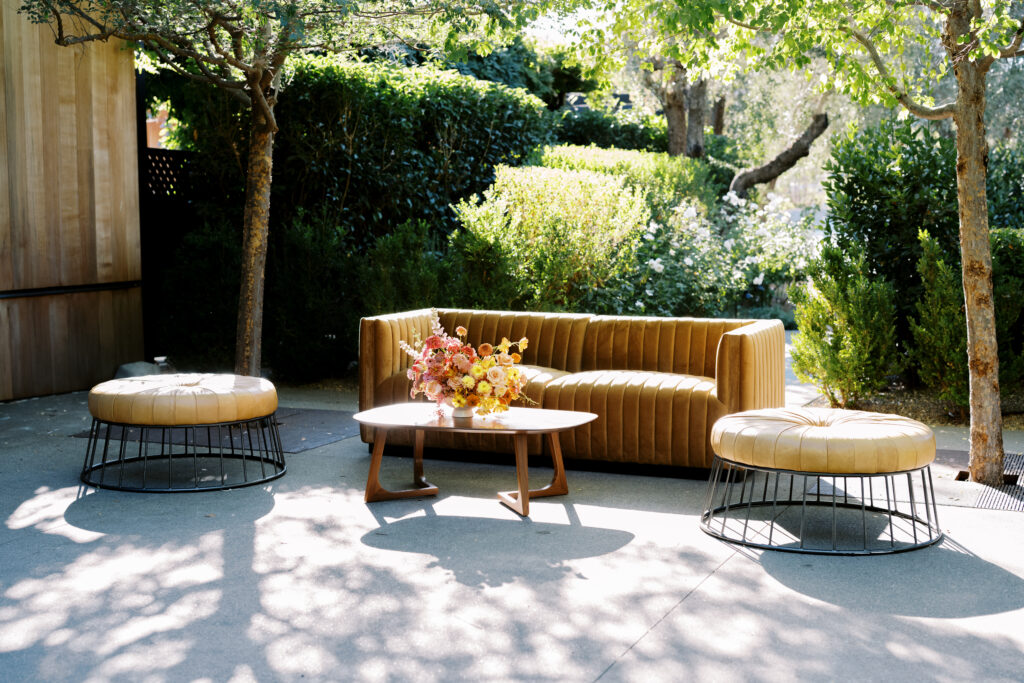
By prioritizing chairs, linens, strategic florals, and thoughtful seating, you’re investing in the elements that guests interact with most and that create the most lasting visual impression. It’s about making intentional choices that resonate with your vision and create an unforgettable atmosphere, all while being smart with your budget. After all, your wedding day is a reflection of your love story, and every detail should speak to that beautiful narrative.
read this post
As your wedding planner, one of the questions I often hear is, “What exactly do you do on the wedding day?” While the planning leading up to it is extensive, the actual day-of is a meticulously choreographed dance, and my role transforms into that of a conductor, overseeing every single note. It’s a day when countless hours of preparation by an incredible team of professionals comes to life, and understanding who is responsible for what labor is key to a flawless celebration.
Let’s pull back the curtain and talk about the incredible effort that goes into creating your perfect wedding day, and how each vendor plays their part.
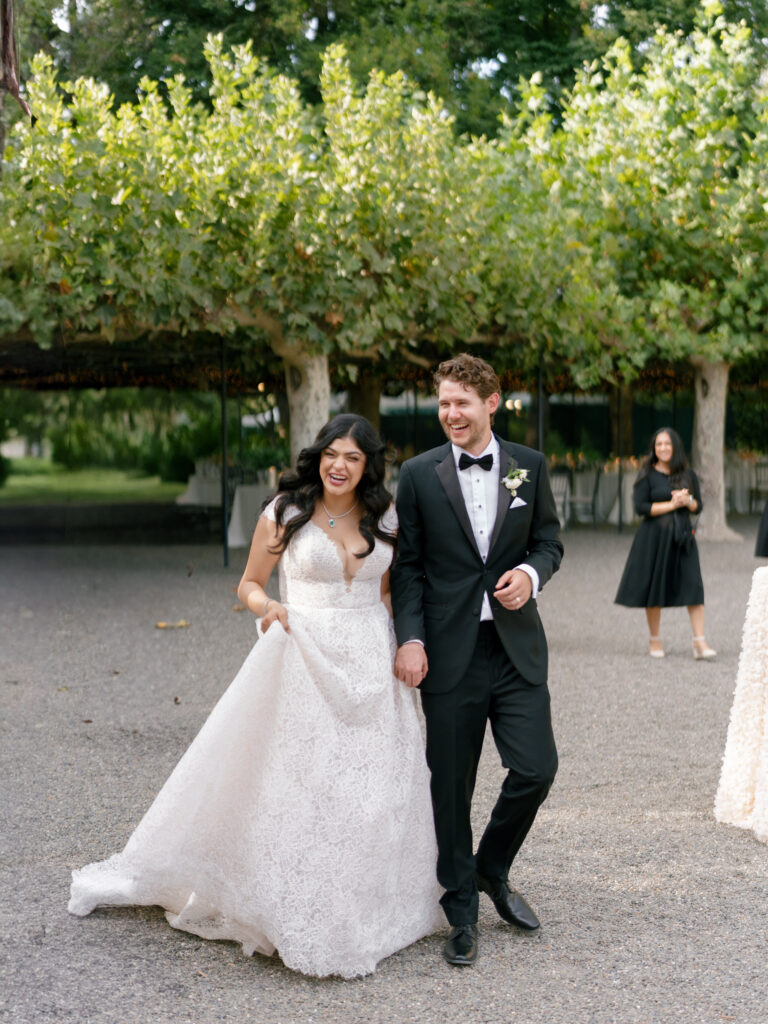
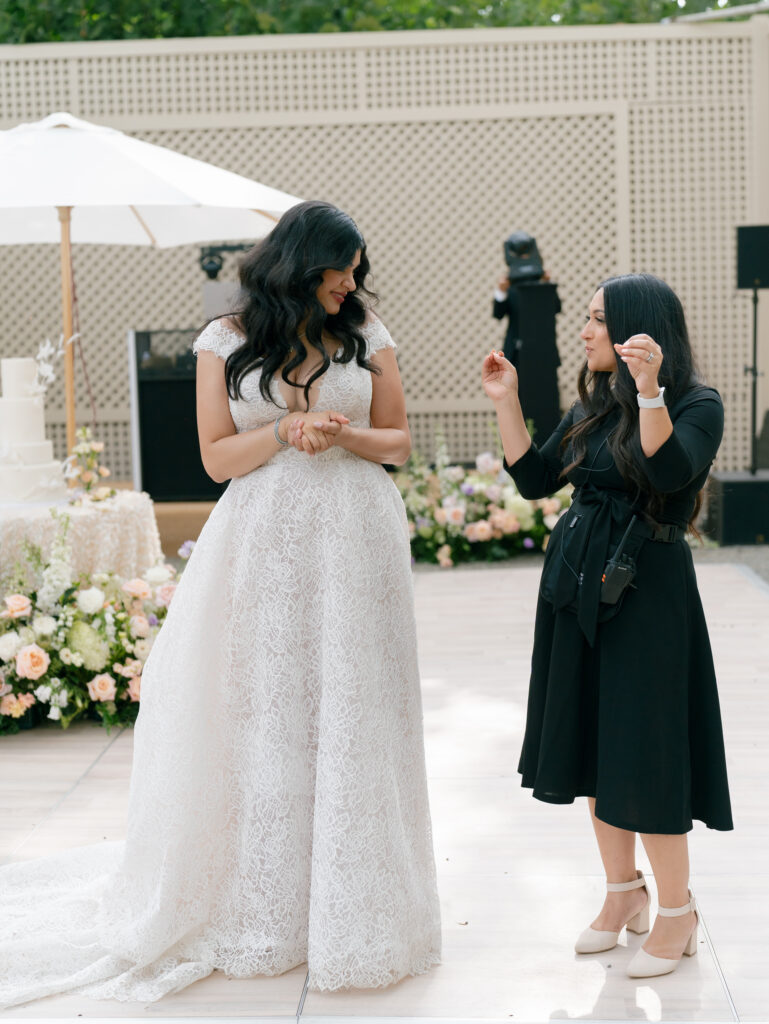
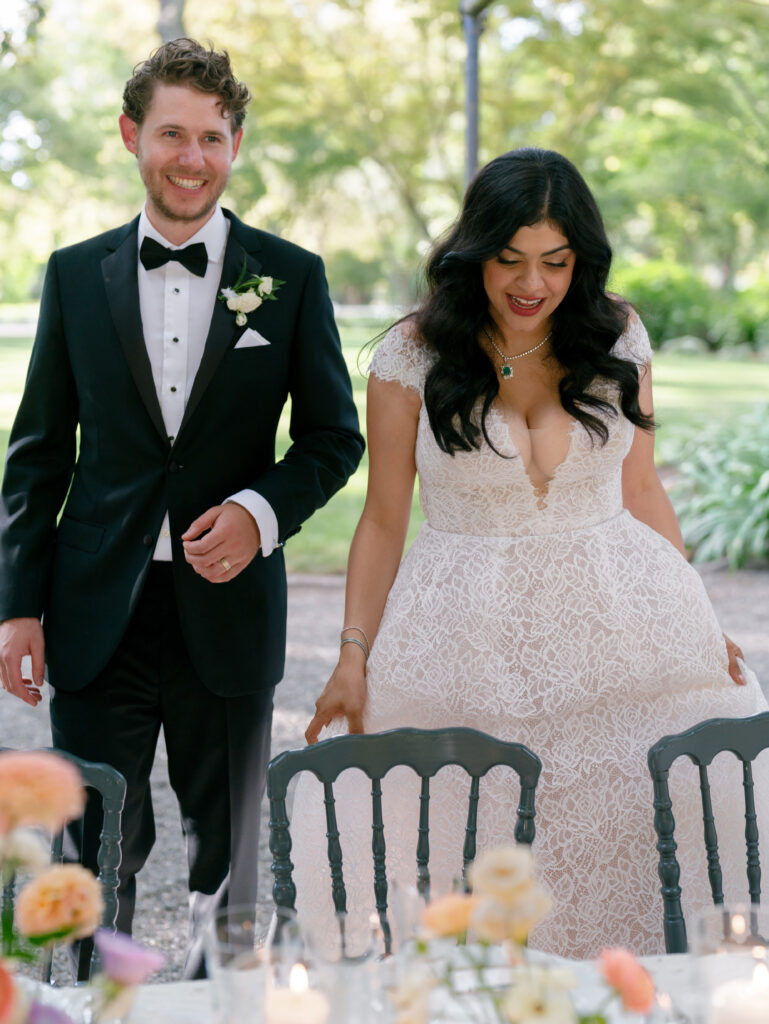
Your Planner: The Big Picture Conductor
On the wedding day, my focus is entirely on the big picture. I’m the first to arrive and often the last to leave, ensuring every detail is perfectly executed. My responsibilities include:
- Overseeing all setup: From ceremony to reception, I’m making sure everything is placed exactly as we planned.
- Running the event timeline: Where all the details live! I ensure we stay on schedule, moving seamlessly from one moment to the next.
- Watching time in general: Are we running late? Can we squeeze in an extra moment for photos? I’m constantly adjusting and adapting.
- Communicating with all vendors: I’m the central hub, answering questions, giving cues, and troubleshooting anything that arises so you can relax and enjoy.
- Overseeing strike/tear down: Ensuring everything is packed up, returned, and the venue is left pristine.
- Management of your personal items: Those lovely DIY projects, special decor pieces you purchased, the card box, your personal items – I make sure they are safely set up and collected at the end of the night.
Think of me as the invisible force behind the scenes, making sure everything appears effortless while orchestrating a complex symphony of details.
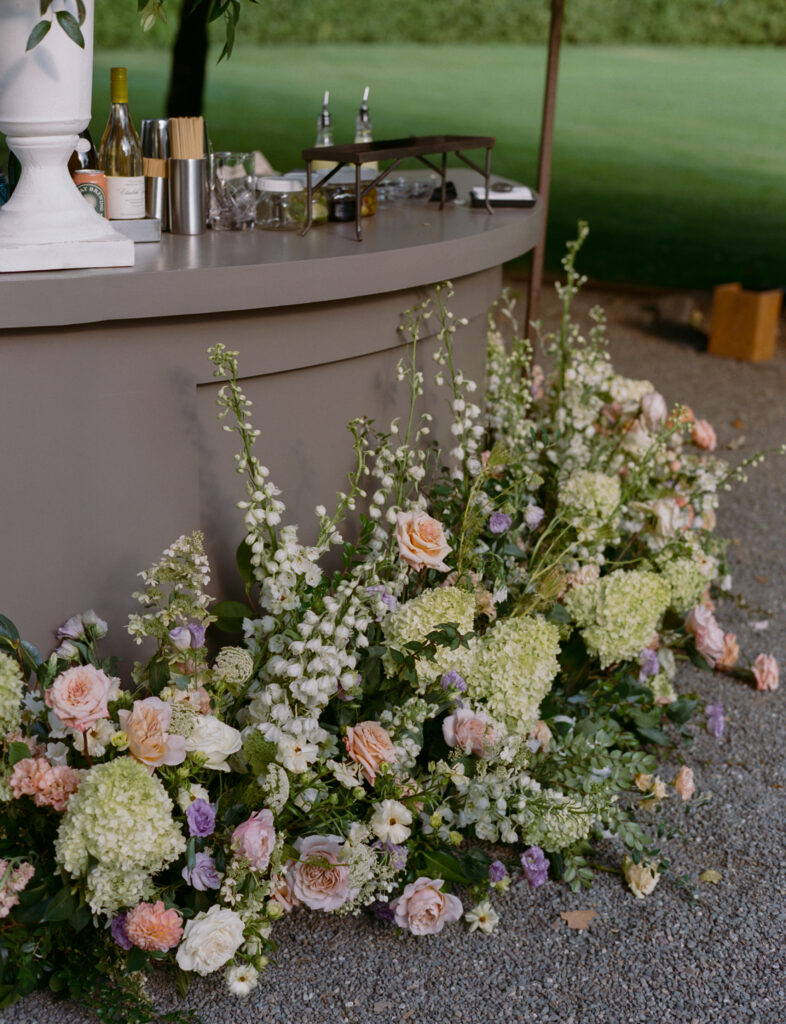
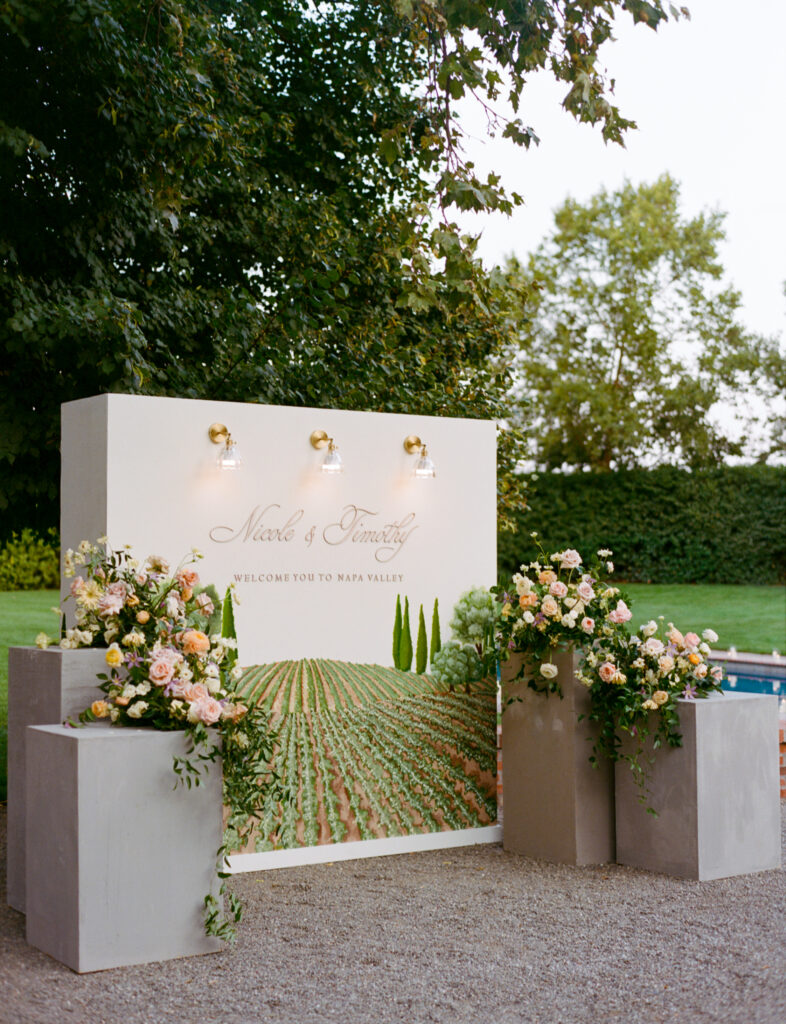
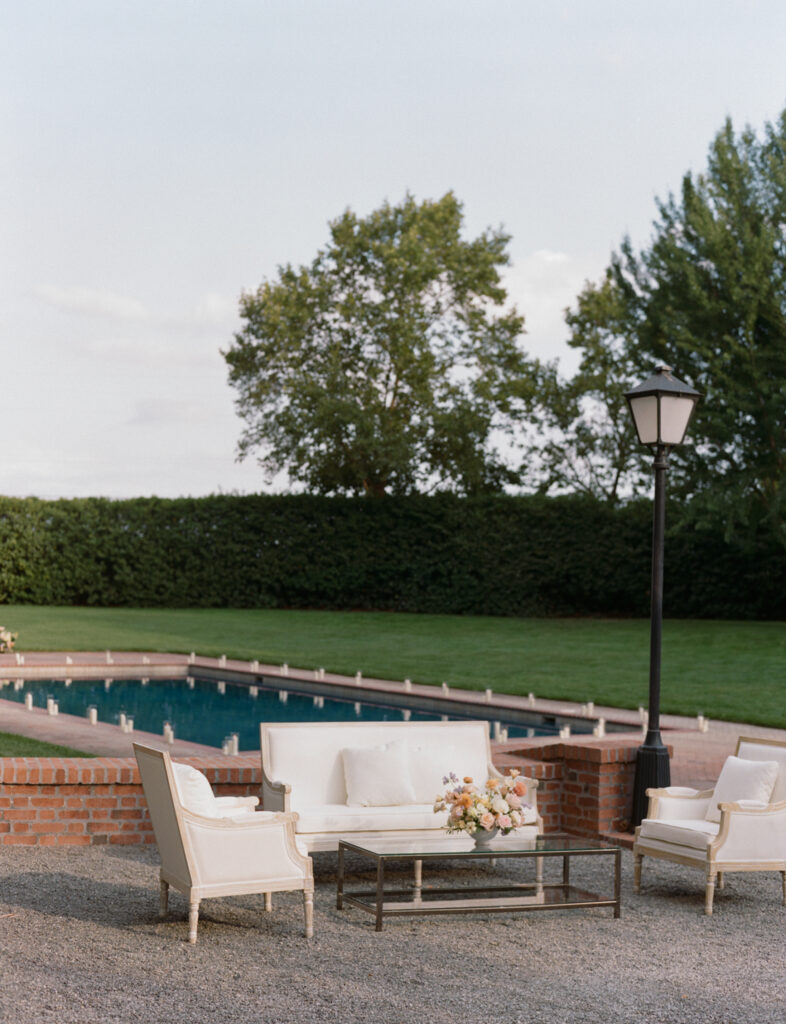
The Vendor Dream Team: Defining Roles & Labor
Every single vendor on your team has a crucial role, and it’s their specialized labor that brings your vision to life.
- The Caterer: More Than Just Food Your caterer is absolutely vital, and their responsibilities extend far beyond just serving delicious food. A full-service caterer will handle the set up of all table settings, including linens, glassware, flatware, and plates. They manage the food and beverage replenishment, keep the kitchen running smoothly, and handle all bussing throughout the event. Crucially, they’re also responsible for trash removal and maintaining a clean, organized space. A critical note: If your caterer is not full-service (perhaps they are a food truck or drop-off service), it’s essential to understand that you will need to hire separate banquet staff. This team will be responsible for all the service aspects mentioned above – setting tables, refilling drinks, bussing, maintaining restrooms, managing trash, and general kitchen tasks. This is a significant labor component that needs to be factored into your budget and plan.
- The Florist: Crafting Beauty Your professional florist is responsible for creating and installing all your gorgeous floral arrangements. This includes everything from the ceremony arch and aisle decor to centerpieces, bouquets, and boutonnieres. Floral installation can be a significant undertaking, requiring a team and often specialized equipment. Considering DIY florals? If you’re not planning to hire a professional florist for certain elements, this is something that must be discussed in detail with your coordinator during our planning meetings. We need to determine who will be responsible for setting up those DIY pieces, ensuring they look perfect, and what the associated costs for that added labor will be on your coordinator’s end. We want to avoid any last-minute surprises!
- The Venue & Rentals: The Foundation Generally, your venue typically handles the set up of their in-house tables and chairs. They’ll place them according to our floor plan, setting the stage for your event. However, if you’re renting tables, chairs, or any large furniture (like lounge sets, specialty bars, or staging) from a separate rental company, please remember that labor should be added to that rental estimate to cover their set up and tear down. These items often require a dedicated team and significant time for proper placement and removal.
The Power of Pre-Wedding Meetings
All of these crucial details – who is responsible for each task related to set up, tear down, and service – are meticulously determined and documented in our meetings leading up to the wedding day. This ensures everyone is on the same page, roles are clearly defined, and there are no ambiguities. It’s how we transform a complex logistical puzzle into a seamless, joyful celebration for you.
Your wedding day is a collaborative masterpiece, and with a clear understanding of each vendor’s role and the incredible labor involved, we ensure that every single element comes together flawlessly. My job is to make sure you simply get to soak it all in and celebrate!
read this post
Navigating your wedding day timeline can feel like a delicate dance, but with a little forethought, you can ensure every precious moment is beautifully captured! As your wedding planner, one of my favorite topics to discuss is how to seamlessly weave your photographer into your day. It’s all about creating a flow that feels natural, joyful, and ensures you have a stunning collection of memories to cherish.
Let’s dive into some key considerations for your photography timeline!
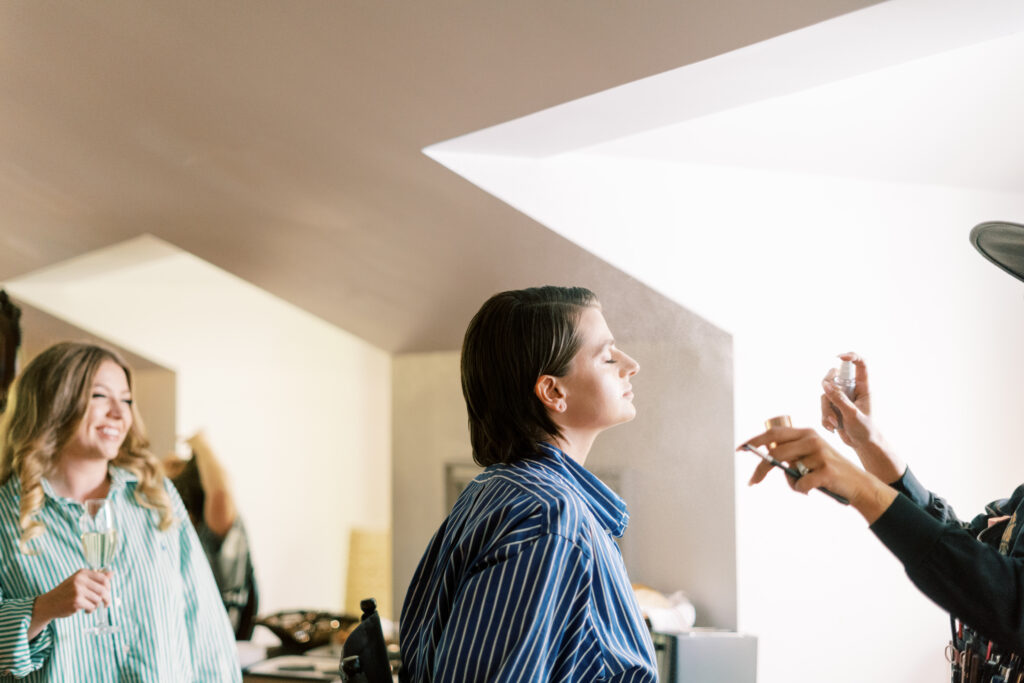
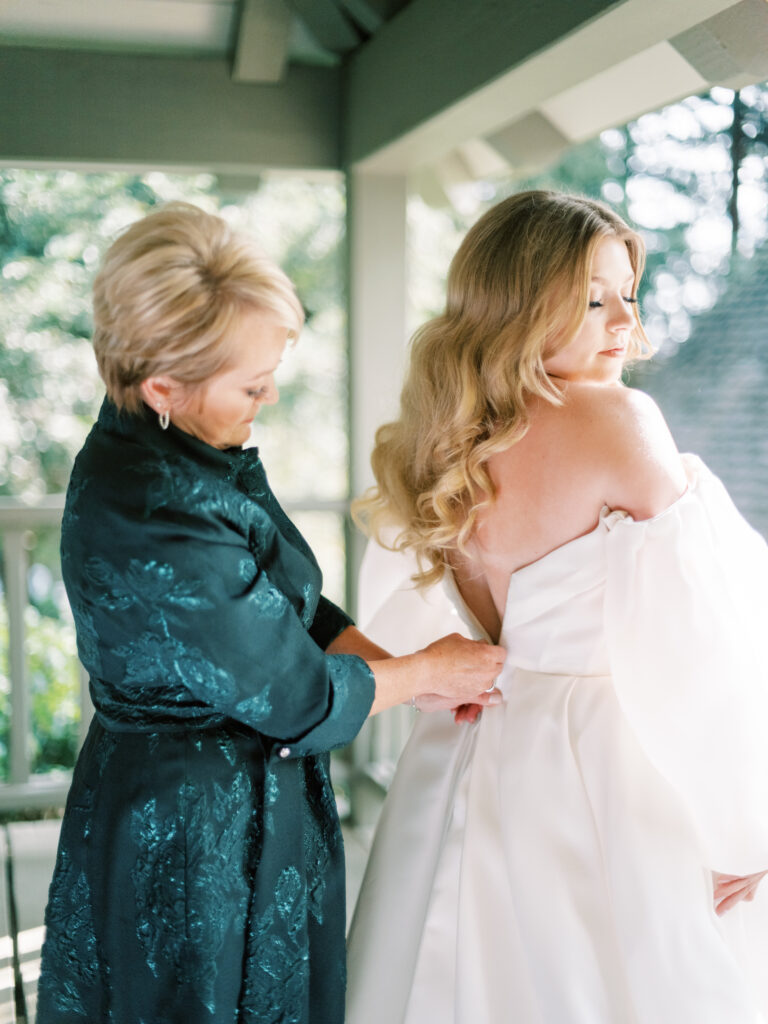
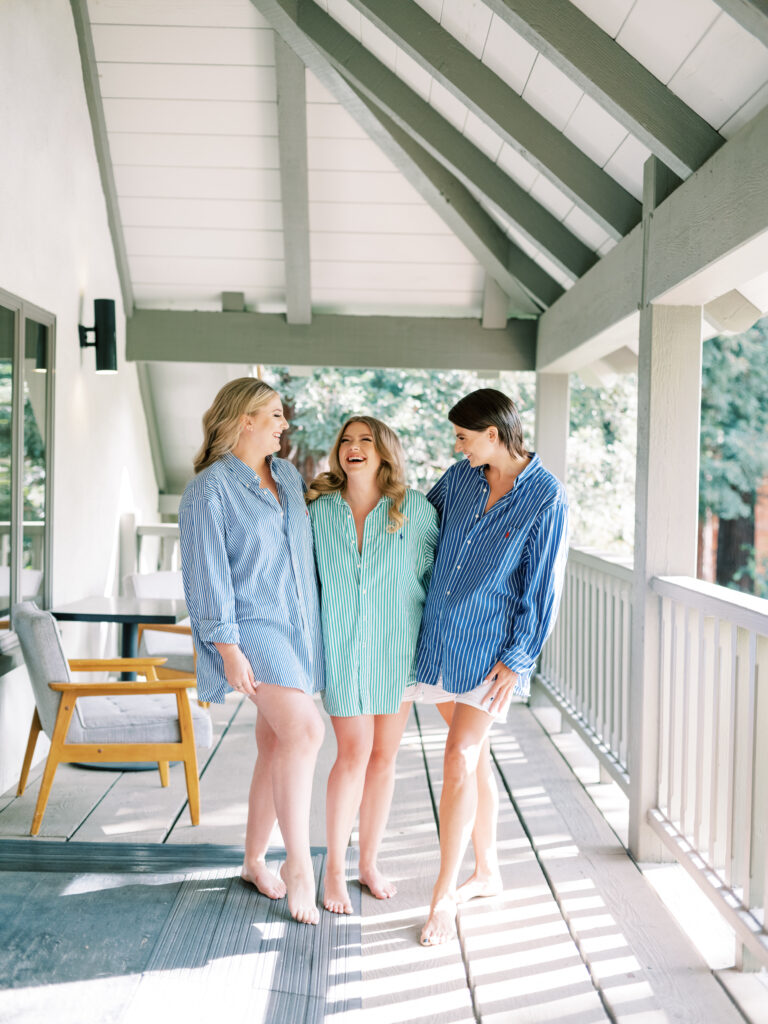
The Art of “Getting Ready” Photos
These moments are pure magic! From the excited chatter to the final touches, “getting ready” photos truly set the tone for your wedding day. I always recommend carving out ample time for your photographer to capture these candid and emotional scenes. Think about when you’ll be putting on your dress, exchanging gifts with your bridal party, or having those final hair and makeup touch-ups. Perfecting your beauty schedule is key so your photographer can arrive when the most photogenic action is happening!
First Look: To See or Not to See?
This is a big one, and there’s no right or wrong answer – just what feels right for you!
A Day With a First Look:
- Pros: This is a wonderful option for many couples! A first look offers a private, intimate moment for you and your partner to see each other before the ceremony. It can truly ease any pre-ceremony jitters and allows for more relaxed, emotional portraits without a time crunch. Plus, it frees up significant time after the ceremony for you to enjoy your cocktail hour and mingle with guests! You can get a lot of your formal portraits done before the ceremony, leaving more time for celebration later.
- Cons: Some couples prefer the traditional moment of seeing each other for the first time as one walks down the aisle. If you choose a first look, that initial “reveal” won’t happen during the ceremony.
A Day Without a First Look:
- Pros: The sheer anticipation and emotion of seeing your beloved for the first time as you walk down the aisle is truly breathtaking and makes for incredibly powerful photographs.
- Cons: This option typically means that all of your formal portraits (family, wedding party, and couple’s portraits) will need to happen during cocktail hour. This can feel a bit rushed, and you might miss out on some of your own cocktail hour festivities. Planning for a slightly longer cocktail hour can help alleviate this.
Regardless of your choice, we’ll build a timeline that supports your vision perfectly!
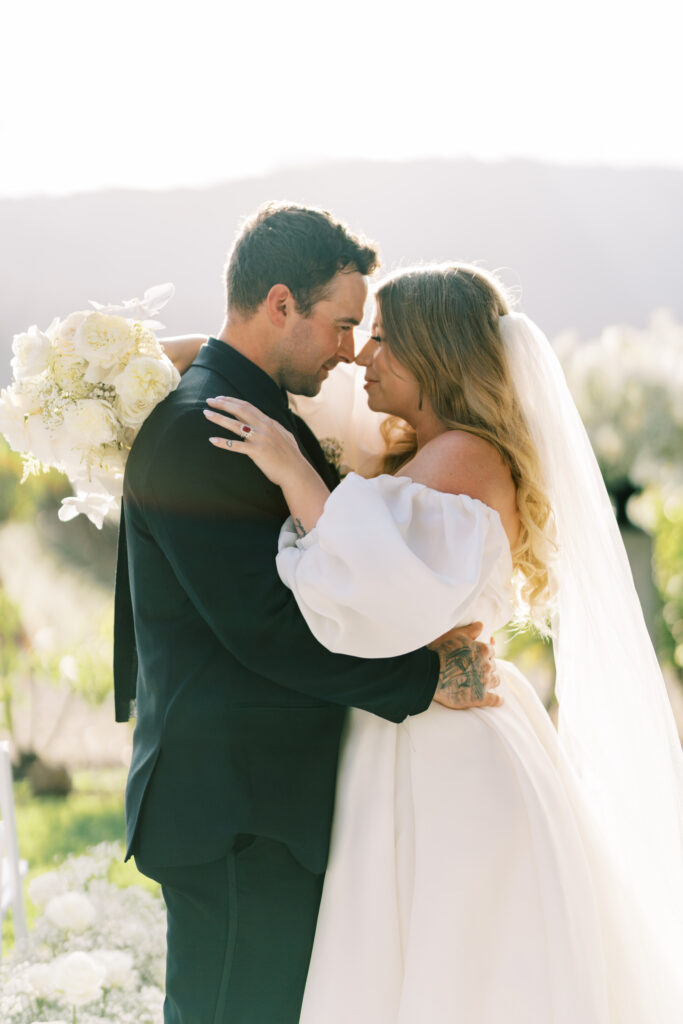
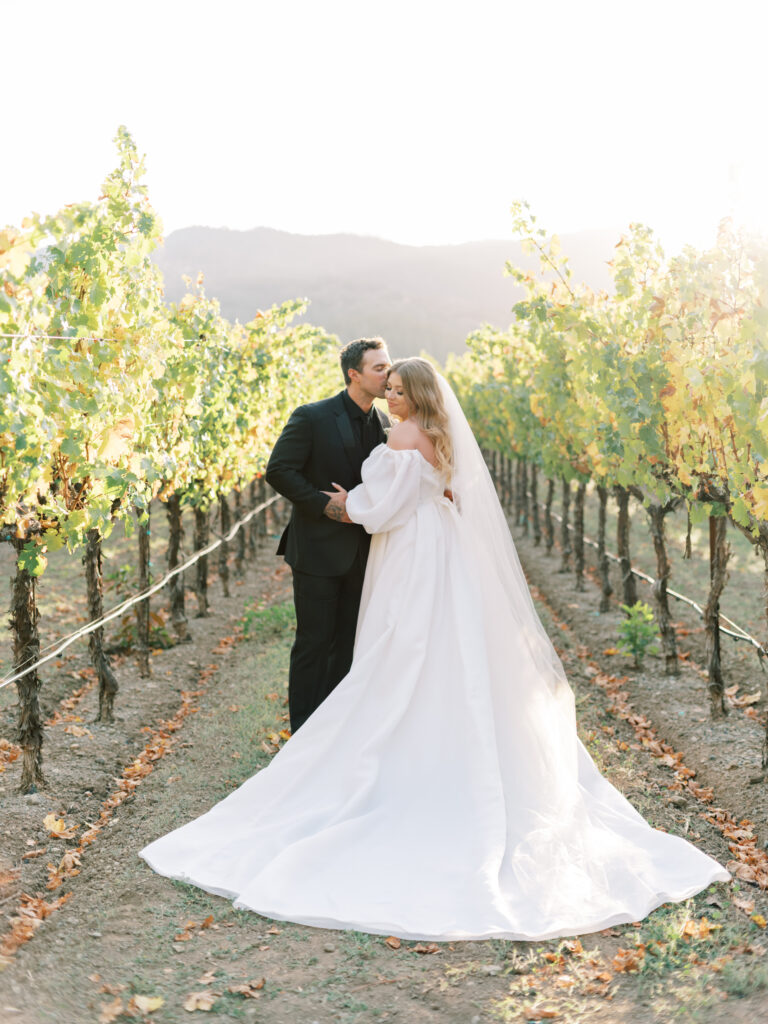
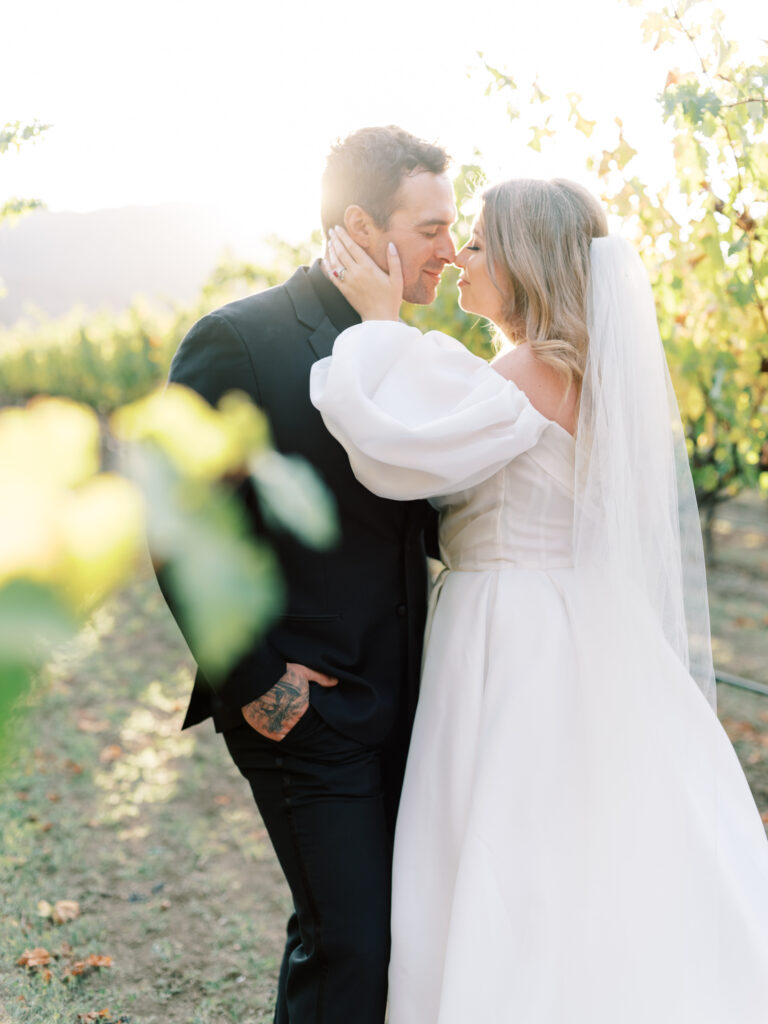
The Grand Exit and Dismissal Time
When it comes to your photographer’s departure, we want to make sure they’re there for all the important moments, right up to the end!
Typically, having your photographer stay for about 30 minutes of open dancing coverage is usually enough to capture the energy and fun of your reception. You’ll get plenty of fantastic shots of your guests letting loose and celebrating! Beyond that, the photos can start to look quite similar, and you’ll likely have all the “party” shots you need.
However, if you’re dreaming of a formal send-off – think sparklers, bubbles, or a classic car departure – it’s highly likely that you’ll need to add on extra time to your photographer’s package. These moments are absolutely iconic and deserve to be captured, but they often happen later in the evening after open dancing has been underway for a while. We’ll chat about your vision for the end of the night and make sure your photographer is there to document every last magical detail.
Ultimately, your wedding day timeline is a collaborative effort, and my goal is to make it feel effortless and joyful for you. By thoughtfully considering these photographic elements, we’ll create a schedule that allows your photographer to capture every beautiful memory, ensuring your wedding album is a true masterpiece!
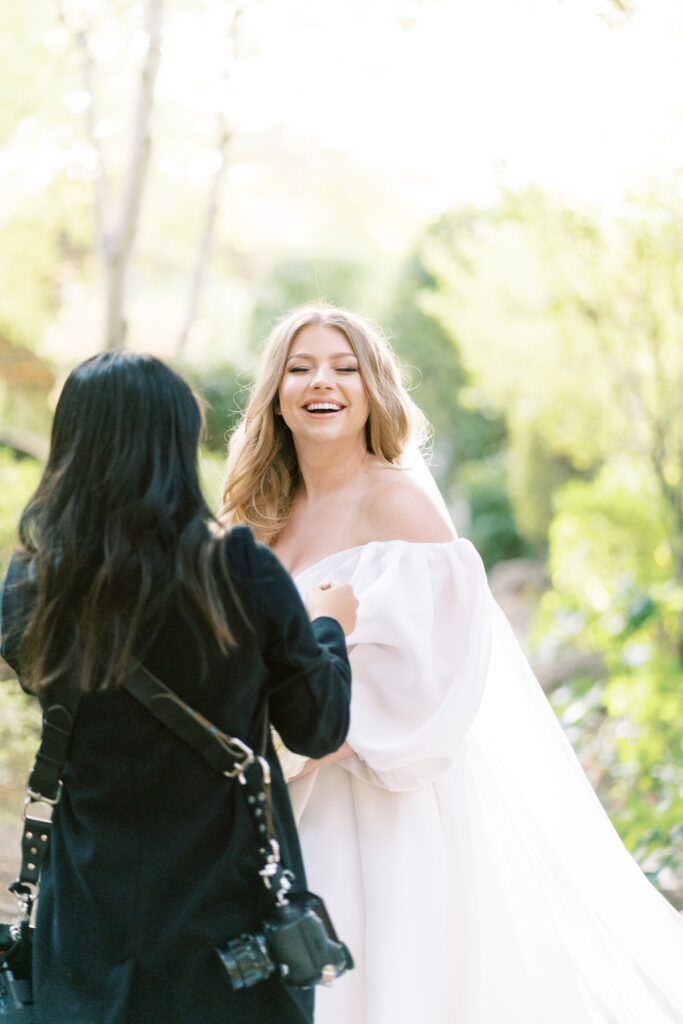
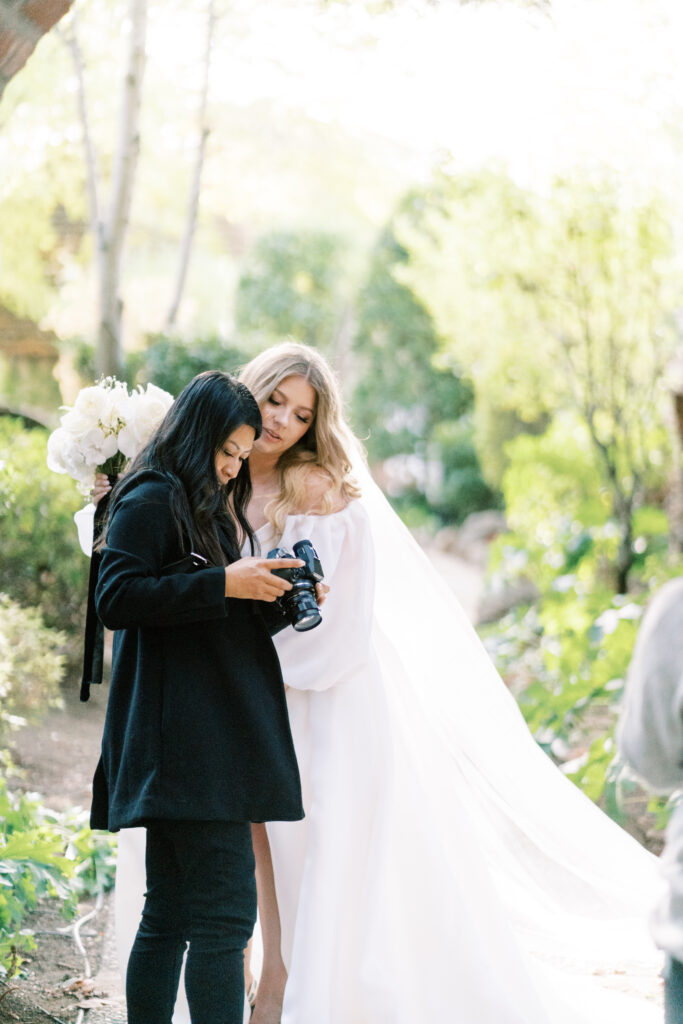
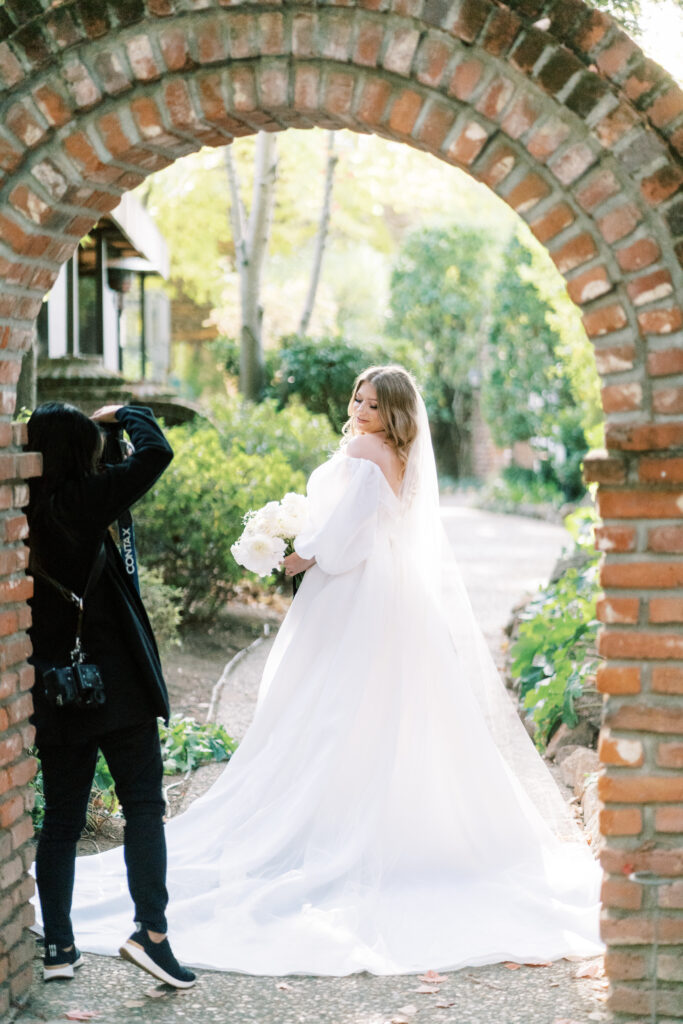
read this post
Wedding season is in full swing and I just wrapped up a wonderful design strategy session with a couple who, like many, are navigating the exciting challenge of creating a truly luxurious and memorable wedding while adhering to a strict budget. It’s one of my favorite puzzles to solve, actually, because it truly highlights the value of thoughtful planning and creative prioritization.
The key to unlocking a stunning design without overspending lies in understanding where to invest your resources. It’s not about cutting corners, but about making impactful choices. We discussed all the elements that contribute to the overall aesthetic, and how each one plays a role in the guest experience.
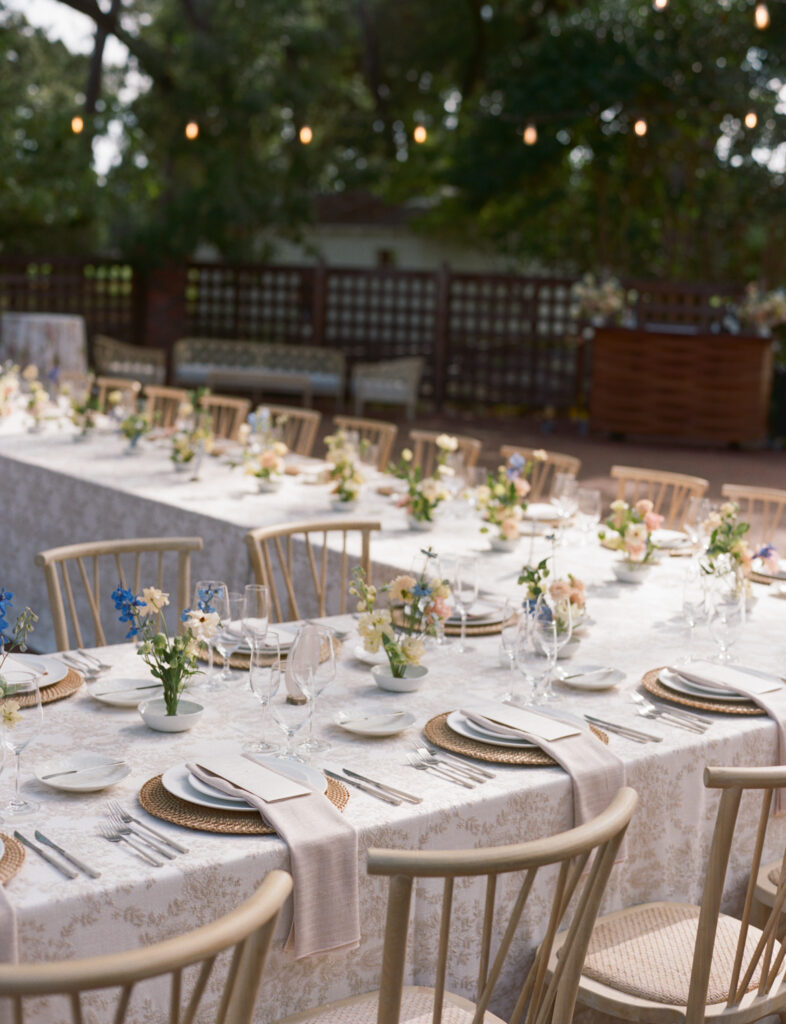
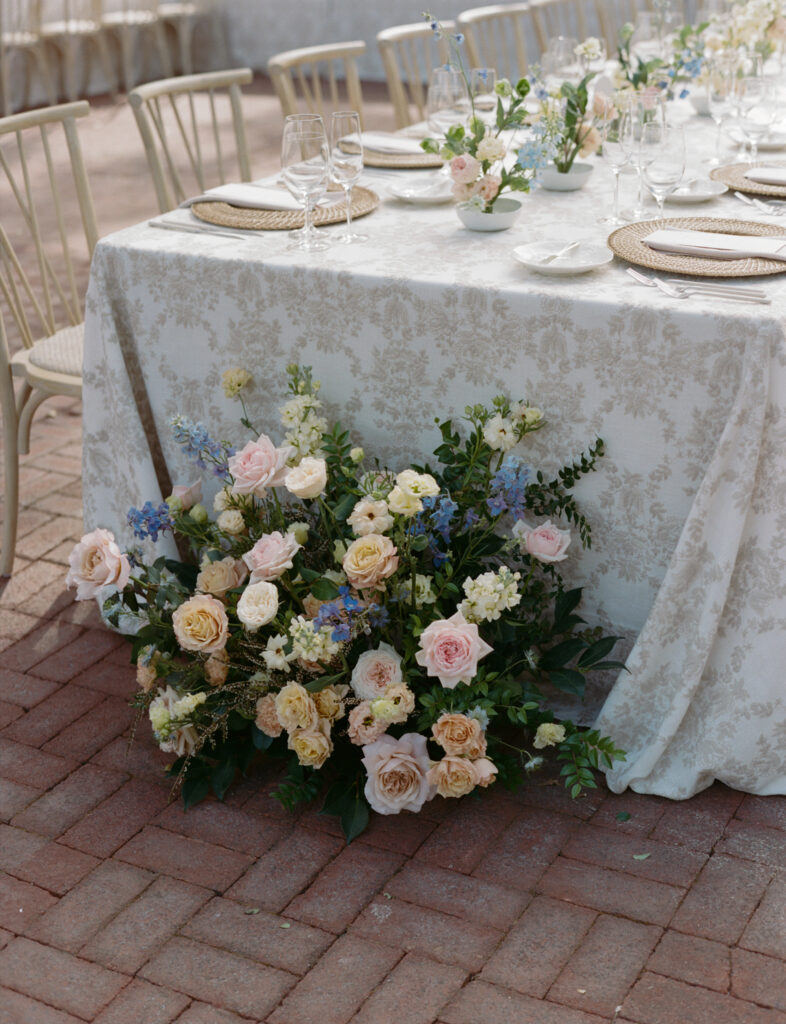
Here’s how we break it down:
- The Floral Bill: Flowers can truly transform a space, but they can also be a significant line item. We talked about prioritizing where the floral impact will be greatest – perhaps a show-stopping ceremony arch, or lush centerpieces on a select few tables, rather than trying to adorn every single surface. Sometimes, a few high-impact arrangements are far more effective than many small, scattered ones.
- Upgrading Place Settings or Chairs: This is where the guest count really comes into play. Every single guest needs a plate, cutlery, and a chair. Upgrading these items for 150+ guests can quickly escalate the budget. We weighed the impact of a unique charger plate versus a more comfortable or stylish chair. Often, a beautiful linen and a pop of color in the napkin can elevate a standard place setting without the added cost of specialty china for everyone.
- Signage (Professional or DIY): Signage guides guests and adds a personalized touch. We explored the difference between professionally designed and printed signage (which offers a polished, cohesive look) versus more charming, carefully curated DIY options. For some couples, a beautifully hand-lettered welcome sign is a personal touch they adore, while for others, a sleek, professionally printed menu is a must.
- Lounge Furniture Rentals: Lounge areas create inviting spaces for guests to relax and mingle. While they add a touch of luxury, they’re not always essential. We discussed if a lounge was a must-have for their guest flow and desired atmosphere, or if the existing seating at the venue would suffice. Sometimes, a few strategically placed high-top tables can serve a similar purpose.
- Upgrading the Bar and Bar Back: The bar area often becomes a natural gathering spot, and a well-designed bar can be a focal point. Upgrading the bar itself or adding a stylish bar back can make a big statement. This is often a personal preference choice – does a sleek, custom bar align with their overall aesthetic more than a standard rental?
The beauty of having a planner involved at this stage is that we can provide rough cost estimates for each of these elements before any deposits are placed. We can say, “If you choose these upgraded chairs, that will add X amount to your rental bill,” or “Opting for a full floral arch versus a partial one will impact your budget by Y.” This allows us to strategize these expenses, moving funds around to prioritize what truly matters most to the couple, ensuring we don’t overspend in one area at the expense of another.
It’s about making informed decisions, not just spending. By discussing these design choices and their financial implications upfront, we empower our couples to create a wedding that feels incredibly luxurious and personal, all while staying comfortably within their budget. Strategizing these expenses before placing any deposits is truly key to a happy and hopeful planning process!
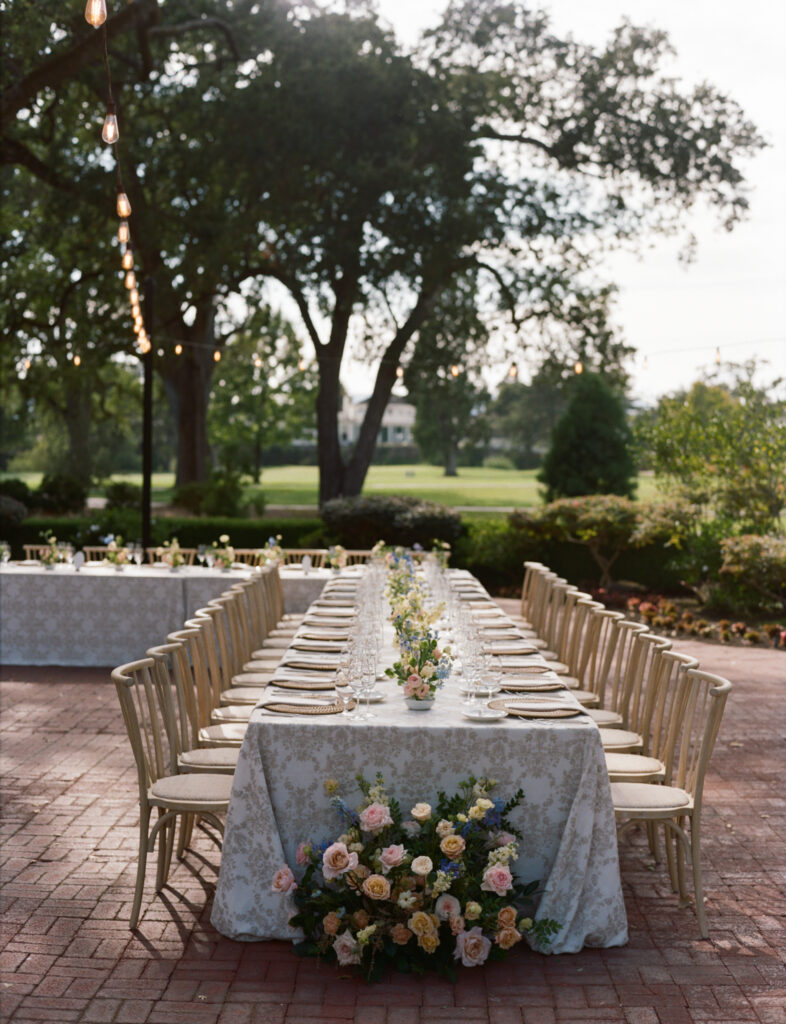
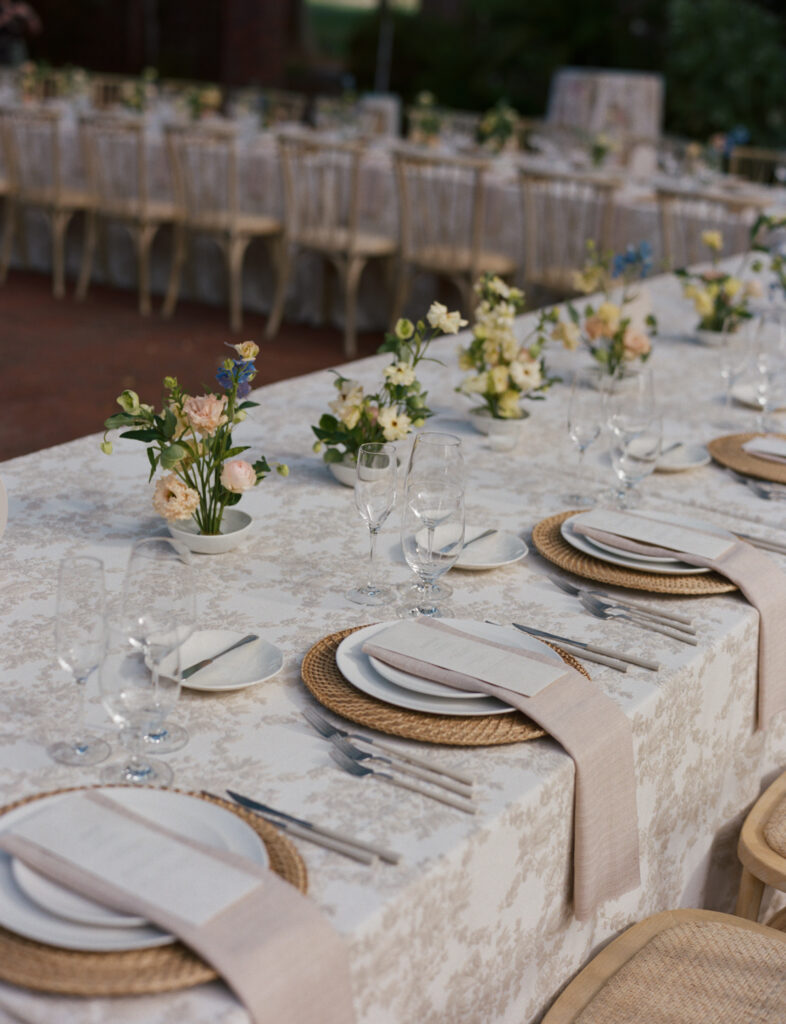
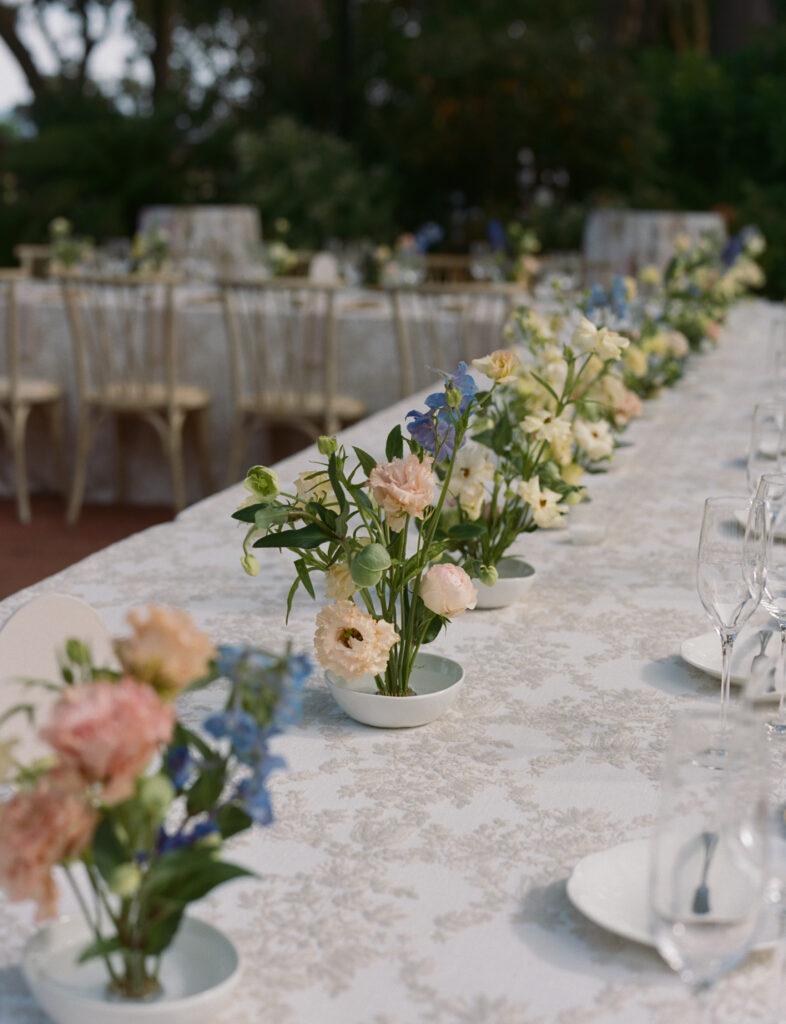
read this post
As a wedding planner, I’ve had the privilege of orchestrating some truly unforgettable celebrations. And while each wedding is special, there’s something particularly magical about a private estate wedding. These events offer a level of intimacy, exclusivity, and customization that’s hard to replicate in a traditional venue. However, they also come with a unique set of considerations that require meticulous planning, design, and logistical expertise.
If you’re dreaming of exchanging vows amidst the rolling hills of a vineyard, the manicured gardens of a historic mansion, or the sprawling grounds of a secluded ranch, you’re likely drawn to the allure of a private estate. And rightfully so! The appeal is undeniable.
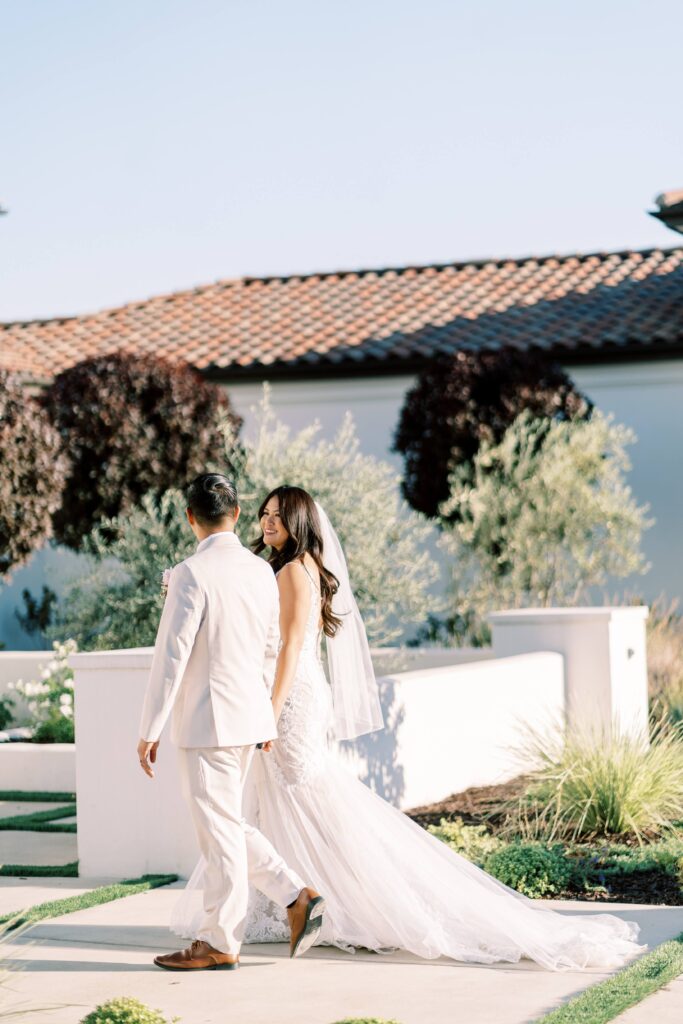
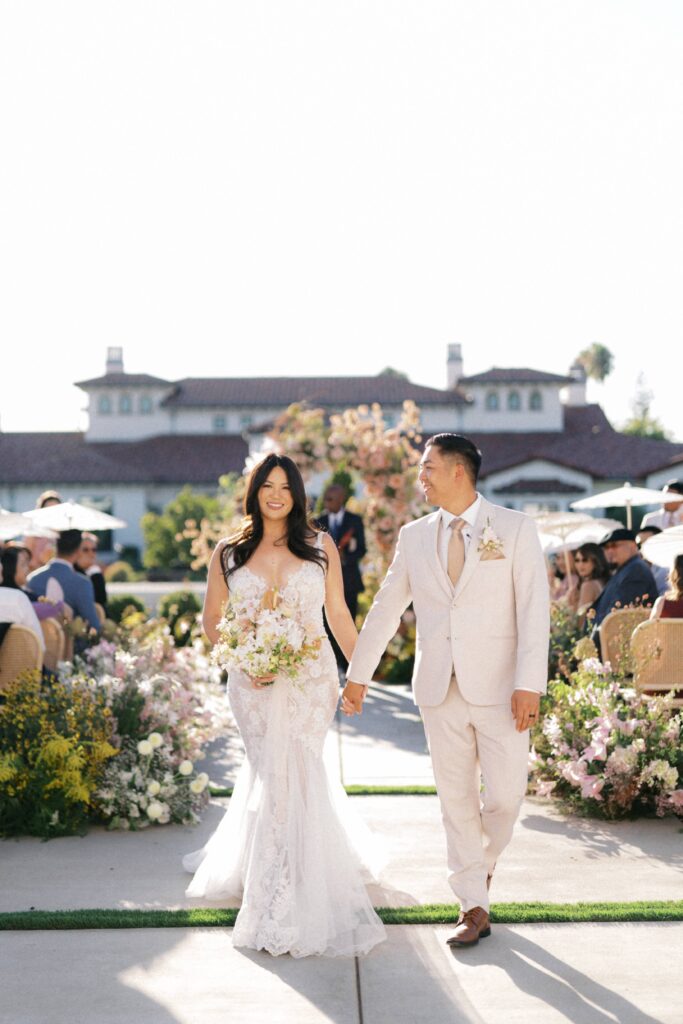
The Allure of Private Estate Weddings
- Unparalleled Privacy: Unlike hotels or banquet halls, private estates offer a sense of seclusion and intimacy. You’re not sharing the space with other events or hotel guests, allowing you to create a truly immersive experience for your guests.
- Endless Customization: Private estates are often blank canvases, giving you the freedom to design every detail to your exact specifications. From the layout and décor to the catering and entertainment, the possibilities are limitless.
- Unique and Memorable: A private estate wedding is inherently unique. It’s a chance to create a celebration that truly reflects your personal style and taste, leaving a lasting impression on your guests.
- Extended Celebrations: Many private estates offer ample space and accommodations, making them ideal for multi-day celebrations. This allows you to create a more immersive experience for your guests, with opportunities for welcome parties, rehearsal dinners, post-wedding brunches, and more.
The Complexities of Private Estate Weddings
However, the very elements that make private estate weddings so special also contribute to their complexity. These venues often lack the infrastructure and amenities of traditional wedding venues, requiring you to essentially build a temporary event space from the ground up. This involves a myriad of considerations:
- Logistics, Logistics, Logistics: This is where things can get complicated. You’ll need to arrange for everything from tenting, flooring, lighting, power generation, and restrooms to kitchen facilities, water sources, and waste removal.
- Vendor Management: Coordinating a team of vendors across various specialties can be a logistical challenge. You’ll need to source and manage rentals, catering staff, florists, entertainers, transportation providers, and more, ensuring everyone is working in sync.
- Permits and Regulations: Private estates may be subject to local noise ordinances, permit requirements, and restrictions on amplified music, tenting, or alcohol service. Navigating these regulations can be time-consuming and complex.
- Site Inspections and Preparations: Multiple site visits are crucial to assess the property’s suitability, determine vendor access, and address any potential challenges. You’ll also need to coordinate site preparations, such as landscaping, cleaning, and repairs.
- Contingency Planning: With an outdoor event, you’ll need a solid backup plan in case of inclement weather. This may involve securing tents, heaters, or fans, and adjusting the timeline and layout accordingly.
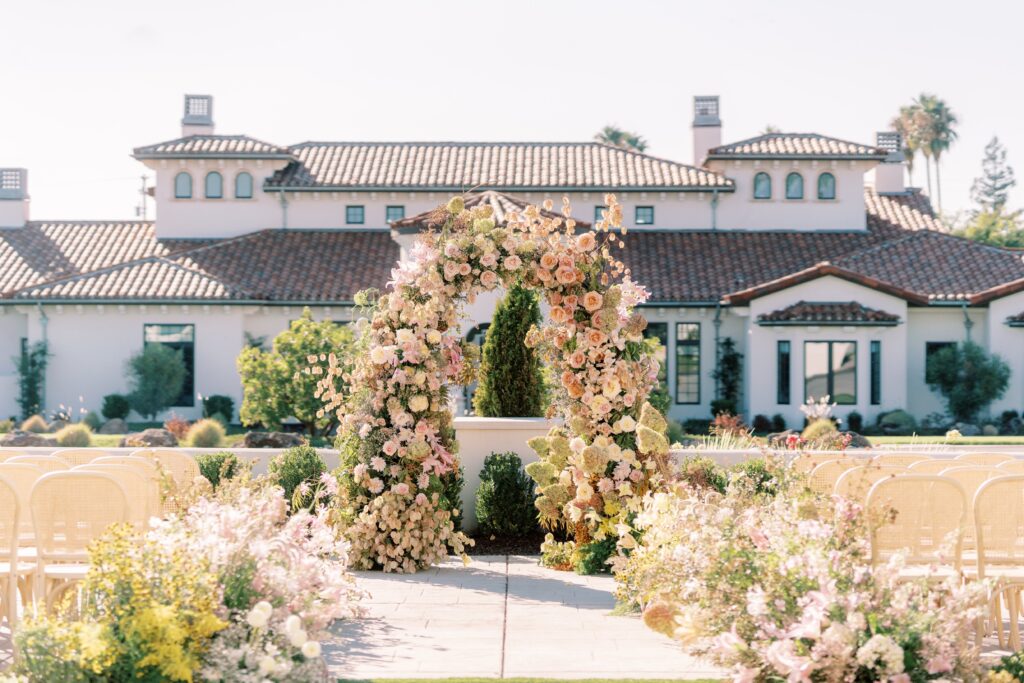
The Indispensable Role of a Wedding Planner
This is where a wedding planner becomes not just helpful, but absolutely essential. Planning a private estate wedding is a massive undertaking, and attempting to manage it all on your own can be incredibly stressful and overwhelming.
A seasoned wedding planner brings a wealth of expertise, resources, and vendor relationships to the table. We act as your advocate, your project manager, and your creative director, ensuring that every detail is executed flawlessly.
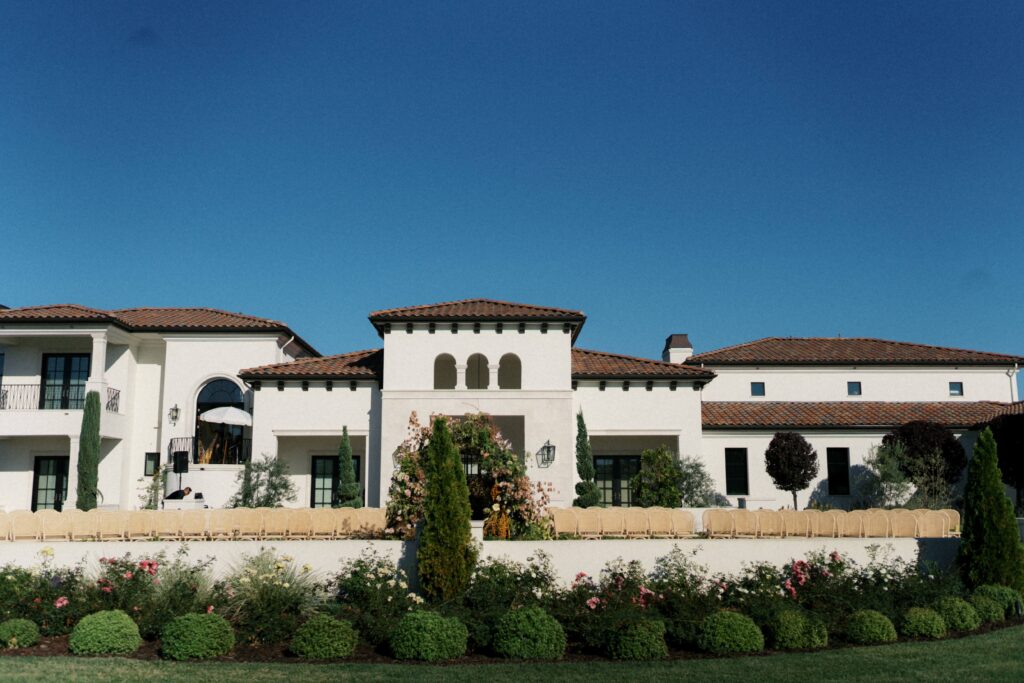
Here’s how a planner can help:
- Comprehensive Planning: We handle every aspect of the planning process, from budget development and timeline creation to vendor selection and contract negotiation.
- Venue Expertise: We have extensive knowledge of private estates and can help you find the perfect location that aligns with your vision, budget, and guest count.
- Vendor Management: We source and manage a team of trusted vendors, ensuring seamless communication, collaboration, and execution.
- Logistical Mastery: We handle all the complex logistics, from rentals and permits to power and waste management, ensuring a smooth and seamless event.
- Design and Aesthetics: We work with you to develop a cohesive design concept that reflects your style and transforms the estate into a breathtaking setting.
- Budget Management: We help you create a realistic budget and track expenses, ensuring you stay on track and maximize your investment.
- Problem Solving: We anticipate potential challenges and develop contingency plans to ensure a flawless event, no matter what surprises may arise.
In essence, a wedding planner is the key to unlocking the full potential of a private estate wedding. We handle the complexities, allowing you to relax and enjoy the magic of your celebration. If you’re considering a private estate wedding, I urge you to invest in a qualified planner. It’s the best decision you can make to ensure a truly unforgettable and stress-free experience.
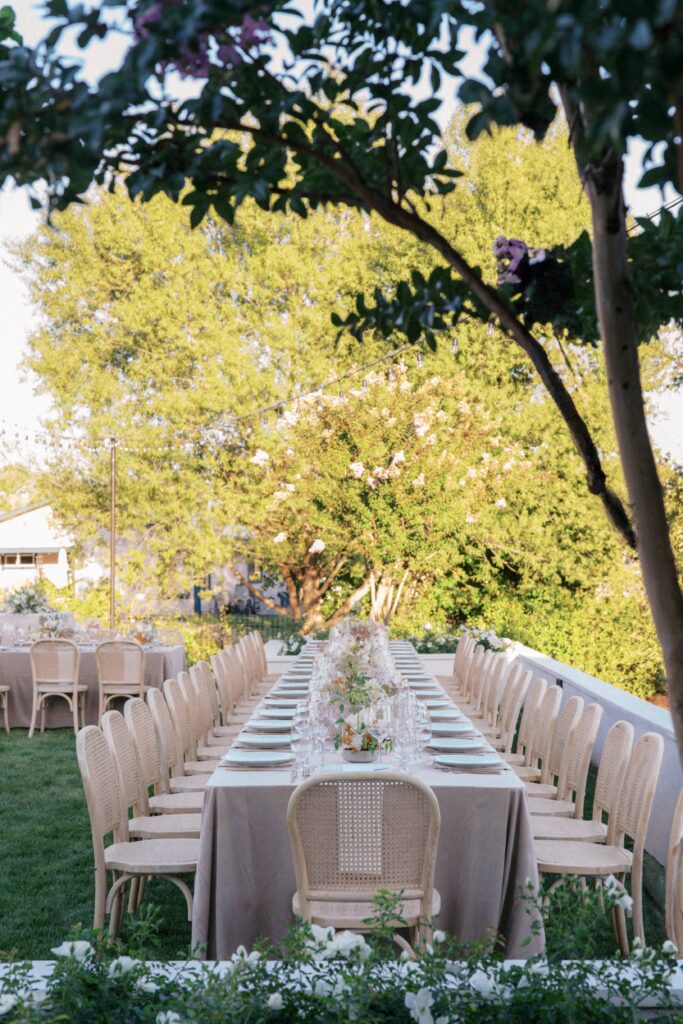
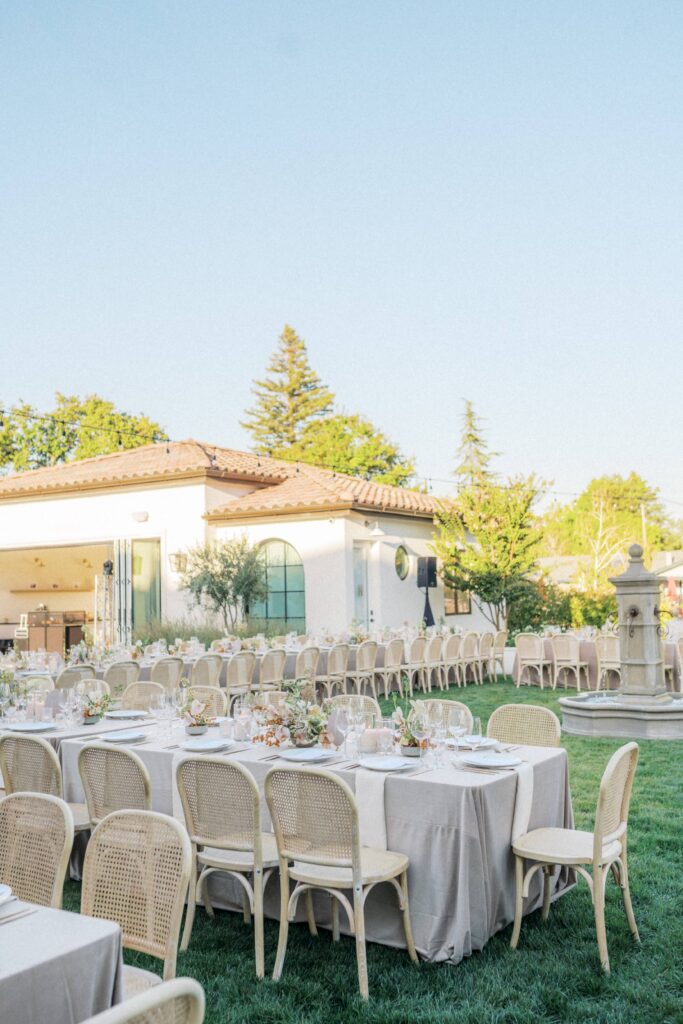
read this post
Planning a wedding involves a whirlwind of exciting decisions, and the order in which you make them can significantly impact the process. To set yourself up for success, we’ve recommended a strategic approach to building your vendor team by starting with two key players: your wedding planner and your venue.
First Things First
- Wedding Planner: Your wedding planner is your advocate, your guide, and your secret weapon throughout the entire planning process. They bring invaluable expertise, industry connections, and creative vision to the table. Hiring a planner first allows them to understand your unique style, budget, and priorities, and then help you find a venue and vendors that align perfectly with your vision.
- Venue: Once you have a planner, you can turn your attention to the venue. Your planner will work with you to identify venues that not only match your aesthetic preferences but also meet your logistical needs and budget.
After solidifying your planner and venue the order in which you lock in your dream vendor team is very important. The quality vendors get booked out quickly so we should prioritize accordingly.
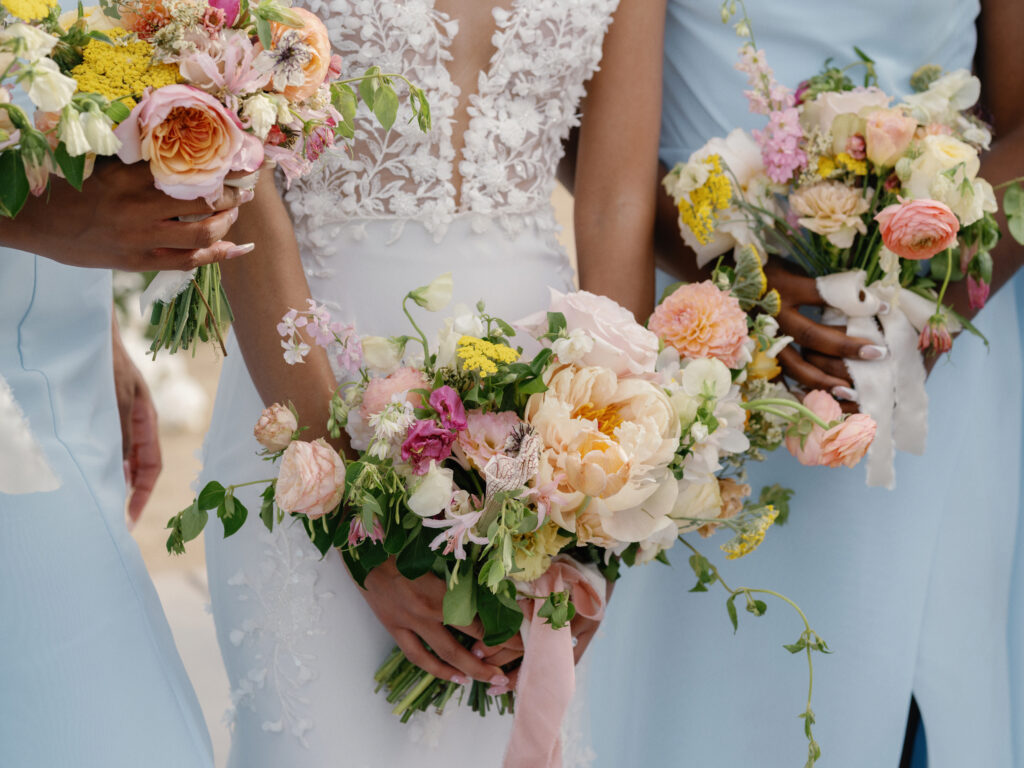
Building Your Vendor Team
With your planner and venue secured, you can move on to assembling the rest of your vendor dream team. Here’s the order we recommend:
- Photographer: Your photos will be one of the most enduring keepsakes from your wedding day, so finding a photographer whose style you love is paramount. Photographers often book up well in advance, especially for popular dates, so securing your first-choice photographer should be a top priority.
- Hair and Makeup Artist: You want to look and feel your absolute best on your wedding day, and that requires a skilled hair and makeup artist. Like photographers, the best artists are in high demand, so booking them early ensures you’ll have your pick.
- Caterer (if applicable): If your venue doesn’t provide in-house catering, securing a caterer is crucial. The food is a significant part of the guest experience, so you’ll want to book a caterer who can create a menu that delights your taste buds and fits your budget.
Setting the Stage for Ambiance and Celebration
With the essentials in place, you can move on to vendors that will help create the atmosphere and energy of your celebration:
- Florist: Flowers play a huge role in setting the tone and ambiance of your wedding. Whether you envision lush, romantic arrangements or modern, minimalist designs, booking a florist early allows them ample time to understand your vision, source the perfect blooms, and create stunning displays.
- Entertainment (Band or DJ): Music sets the mood for your reception and gets your guests on the dance floor. Whether you prefer a live band or a DJ, booking your entertainment early is essential to ensure you get your desired style and create an unforgettable party atmosphere.
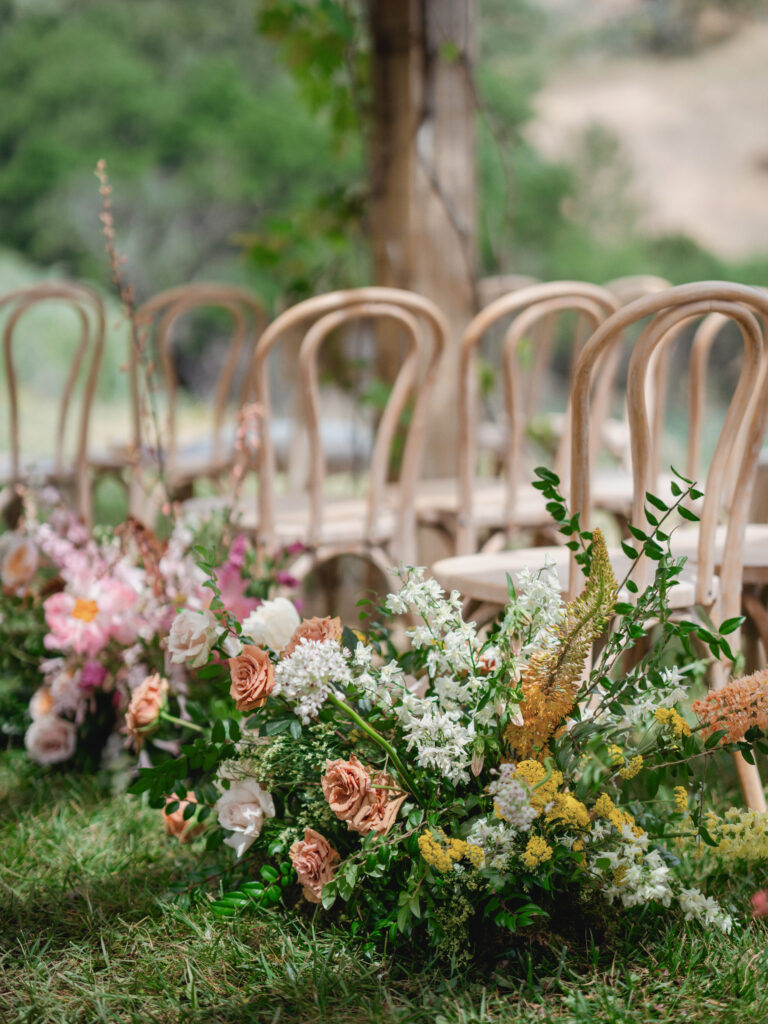
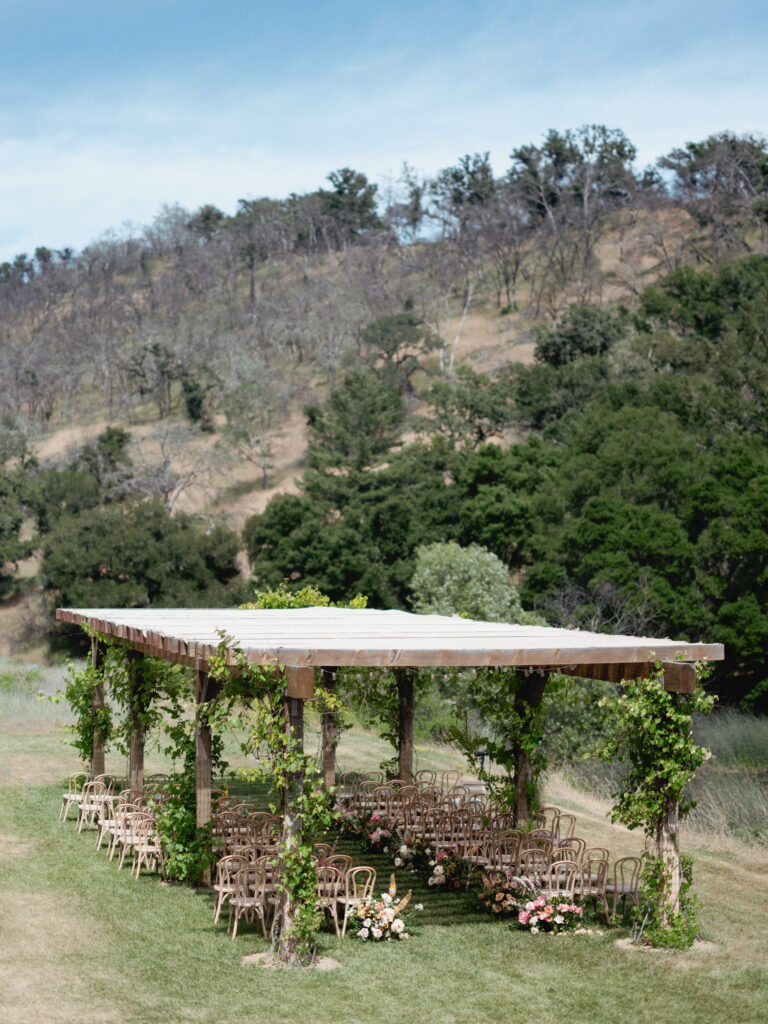
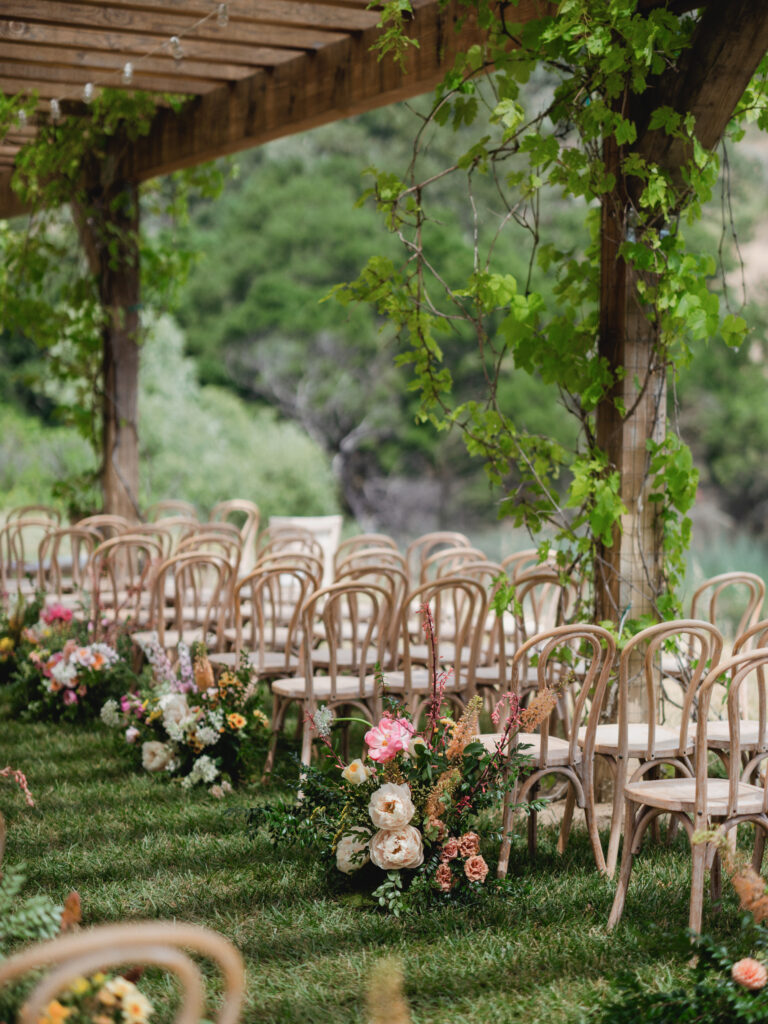
Why This Timeline Works
- Planner as Your Guide: Hiring a planner first ensures that you have an expert on your side from the very beginning, helping you make informed decisions and avoid costly mistakes.
- Venue and Planner Collaboration: Your planner can work with you to find a venue that aligns with your vision, budget, and logistical needs.
- Popular Vendors Book Quickly: The most sought-after vendors in each category (photographers, hair and makeup artists, etc.) often book up a year or more in advance. Booking early increases your chances of securing your top choices.
- Venue Sets the Stage: Your venue often dictates certain logistical needs (catering requirements, setup times, etc.). Having your venue secured allows you and your planner to communicate these needs effectively to potential vendors.
By following this timeline, you’ll be well on your way to assembling a dream team of vendors who will work together seamlessly to bring your wedding vision to life. Happy planning!
read this post
You’re engaged! Congratulations! The excitement is palpable, and the vision of your dream wedding is beginning to take shape. But amidst the flurry of inspiration boards and venue scouting, there’s a crucial first step that often gets overlooked: securing your wedding planner.
As a wedding planner, I’ve witnessed firsthand the transformative power of bringing in a seasoned professional from the very beginning. While it’s tempting to fall head-over-heels for a breathtaking venue, I’m here to tell you that booking your planner first is the savviest decision you can make – especially when crafting a high-end, unforgettable celebration.
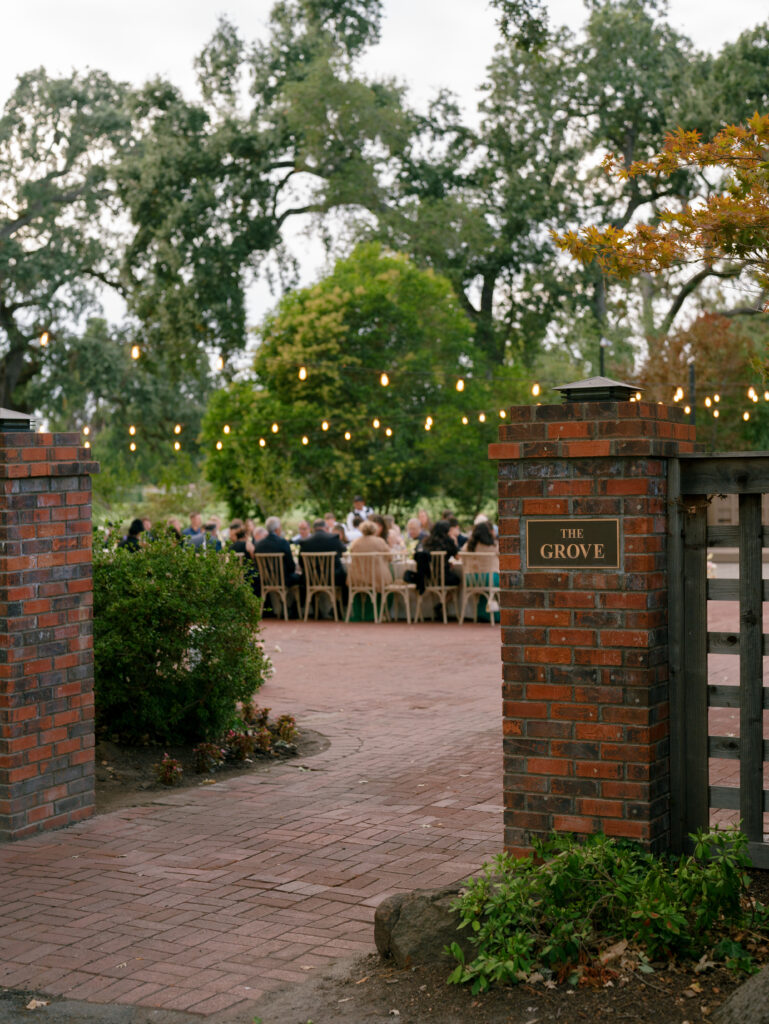
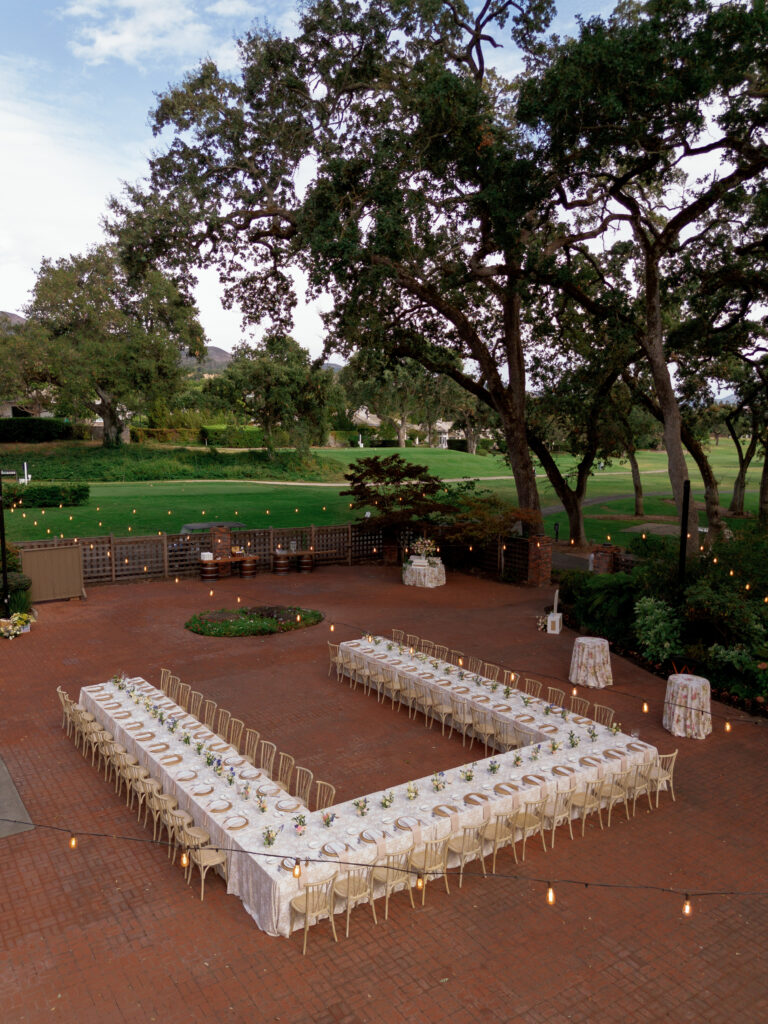
The Venue’s Influence: More Than Just a Backdrop
Let’s be honest, the venue plays a starring role. It sets the stage, influences the ambiance, and provides the physical space for your celebration. However, its impact extends far beyond aesthetics. The venue dictates many key aspects of your wedding, including:
- Budget Allocation: A sprawling estate demands a significantly different budget than a chic, intimate villa. Venue fees, catering costs, and décor possibilities are all inextricably linked. Committing to a venue that strains your budget can force compromises on other essential elements that contribute to the overall experience.
- Vendor Selection: Venues often have preferred vendor lists or specific requirements. These lists may or may not align with your desired aesthetic, style, or budget. Some venues also present logistical challenges that necessitate vendors with specialized expertise (think complex lighting designs in historic spaces or intricate transportation arrangements for remote locations).
- Design and Ambiance: A venue’s inherent style dictates the overall tone of your wedding. A rustic barn calls for a different design approach than a modern art gallery. Choosing a venue that clashes with your vision can lead to costly and frustrating attempts to transform the space.
- Guest Experience: Guest comfort and seamless flow are paramount. The venue’s layout, capacity, and amenities directly impact your guests’ experience. A skilled planner can assess whether a venue truly works for your guest list and desired event flow, ensuring a celebration that is both enjoyable and memorable.
The Planner: Your Strategic Partner
This is where a wedding planner becomes indispensable. We are more than just logistics managers; we are your advocates, your creative partners, and your strategic advisors. By bringing us on board from the start, you gain a wealth of knowledge, experience, and resources. We help you:
- Define Your Priorities: We work closely with you to articulate your vision, values, and priorities. This ensures that your budget is allocated strategically, maximizing the impact of each element.
- Identify the Perfect Venue: We leverage our extensive network and industry expertise to find venues that align perfectly with your aesthetic, budget, and guest list. Often, we can uncover hidden gems that you might not find on your own.
- Curate Your Dream Team: We assemble a team of top-tier vendors who are not only talented and reliable but also a joy to work with. This ensures seamless collaboration, a cohesive aesthetic, and a stress-free planning process.
- Navigate the Fine Print: We understand the intricacies of vendor contracts and can negotiate terms that protect your best interests and ensure you get the best possible value.
- Manage the Logistics: We handle the countless details, allowing you to relax, enjoy your engagement, and savor every moment of your wedding day.
The Strategic Advantage: A Holistic Approach
By securing a planner before a venue, you gain a strategic advantage. You embark on this journey with a trusted advisor who can:
- Provide invaluable guidance: We offer expert advice on all aspects of wedding planning, from budget allocation and vendor selection to design, logistics, and etiquette.
- Prevent costly mistakes: We help you avoid common pitfalls, ensuring that your decisions align with your overall vision and budget.
- Save you time and stress: We handle the time-consuming tasks, allowing you to focus on the joy of the celebration.
- Ensure a cohesive vision: We work to create a seamless and unforgettable experience that reflects your unique love story and style.
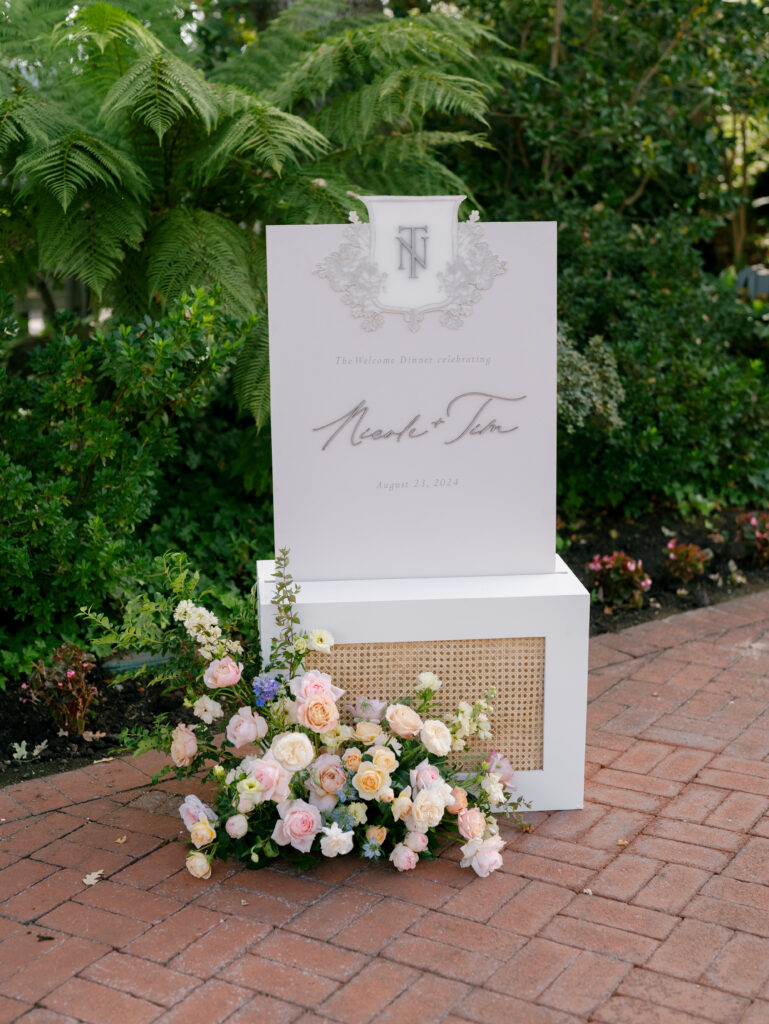
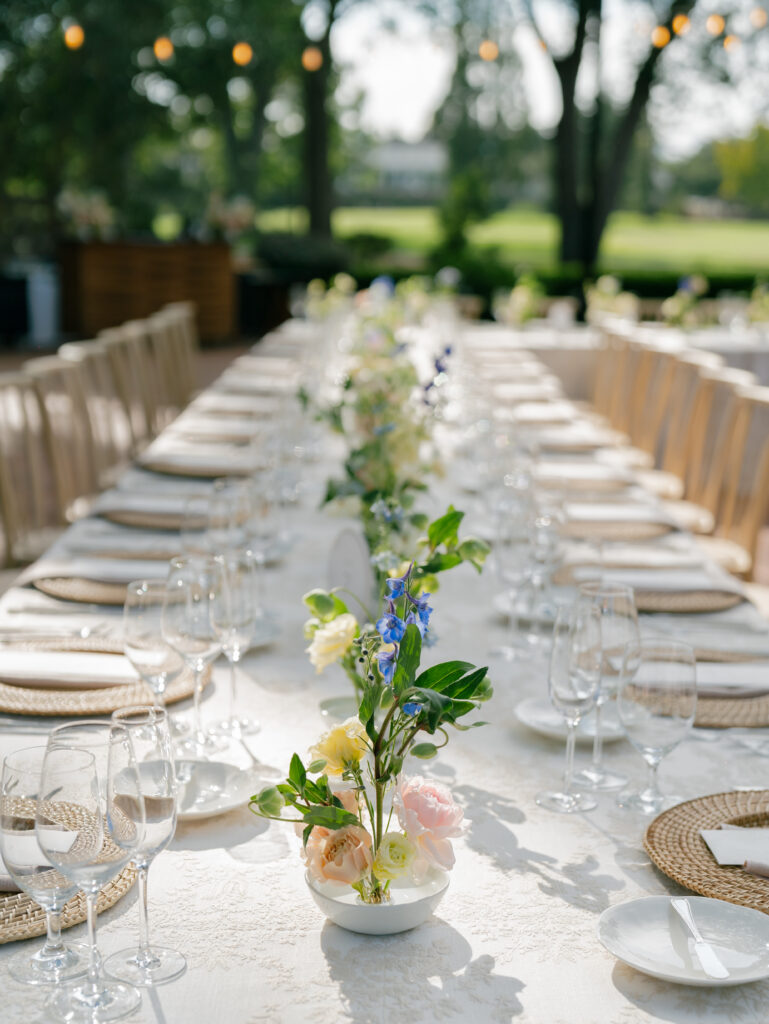
In the world of luxury weddings, every detail matters. By prioritizing the planner-first approach, you lay the foundation for a truly extraordinary event – one that is not only visually stunning but also flawlessly executed and deeply meaningful.
read this post
So, you’re diving into wedding planning and encountering terms like “day-of coordination” and “full-service planning.” What’s the difference, and which one do you need? Let’s break it down without getting lost in the details.
Think of “Coordination Only” (sometimes called “month-of” or “day-of” coordination, though it often starts a bit earlier) as having a seasoned conductor step in to lead the orchestra right before the big performance. You’ve already chosen your musicians (vendors), selected the music (your vision), and handled most of the rehearsals (planning). The coordinator ensures everyone plays in harmony on the day itself.
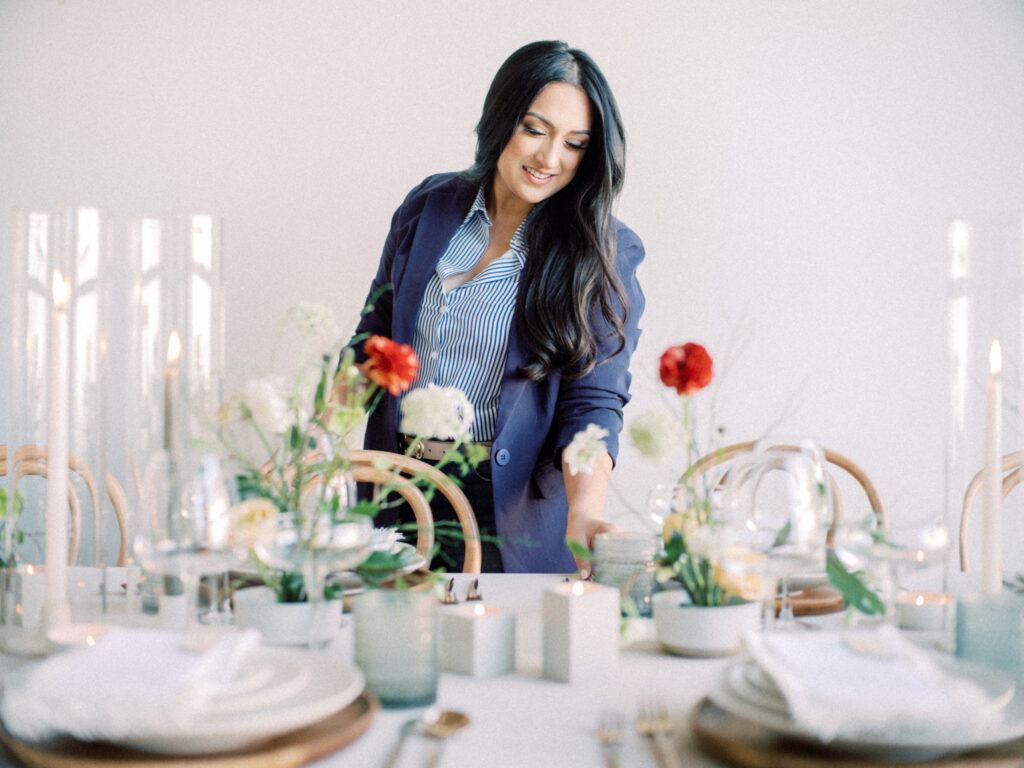
Coordination typically involves:
- Finalizing timelines and vendor communication in the weeks leading up to the wedding.
- Creating a detailed day-of schedule.
- Managing vendor setup and breakdown on the wedding day.
- Overseeing the flow of events on the day, ensuring everything runs smoothly.
- Troubleshooting any last-minute issues.
- Being the point of contact for vendors and the wedding party on the day.
On the other hand, “Full Service Wedding Planning” is like having a dedicated producer and director from the very first note. They’re involved in every aspect of the production, from casting the musicians (vendor selection) to designing the stage (décor) and ensuring the entire performance (wedding) is a masterpiece.
Full Service Planning typically includes everything in coordination, plus:
- Budget creation and management.
- Venue search and selection.
- Vendor research, recommendations, and contract negotiation.
- Theme and design development.
- Creating and managing all rental and design related orders.
- Attending vendor meetings with you.
- Handling transportation.
- Overseeing all logistical details from start to finish.
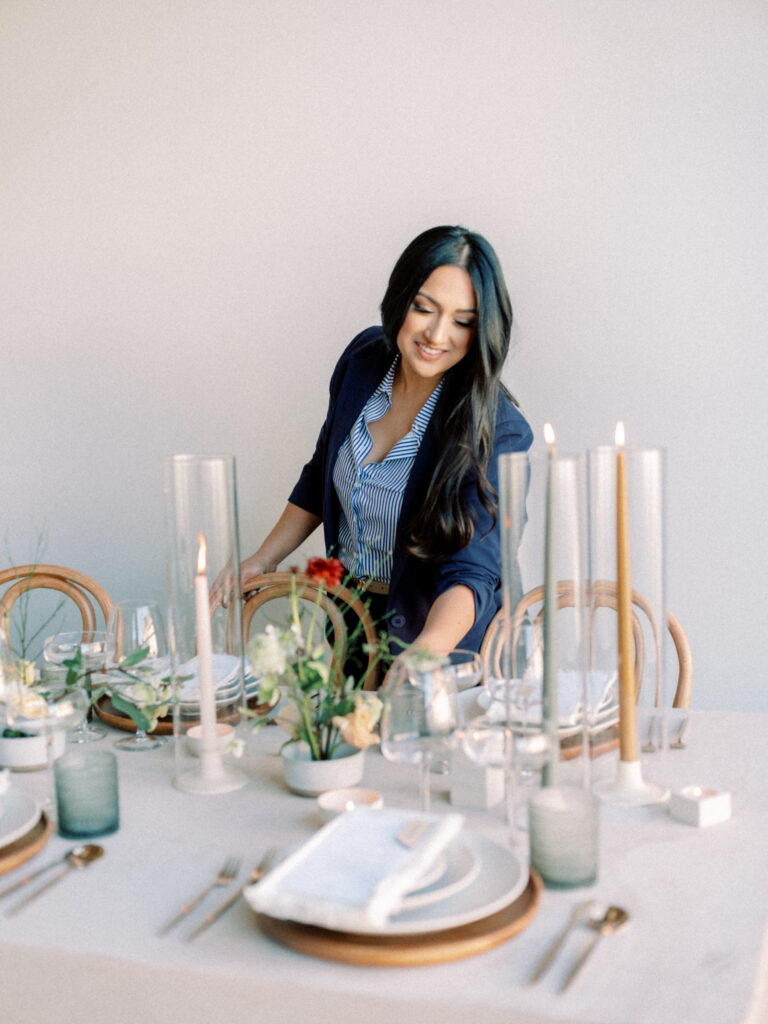
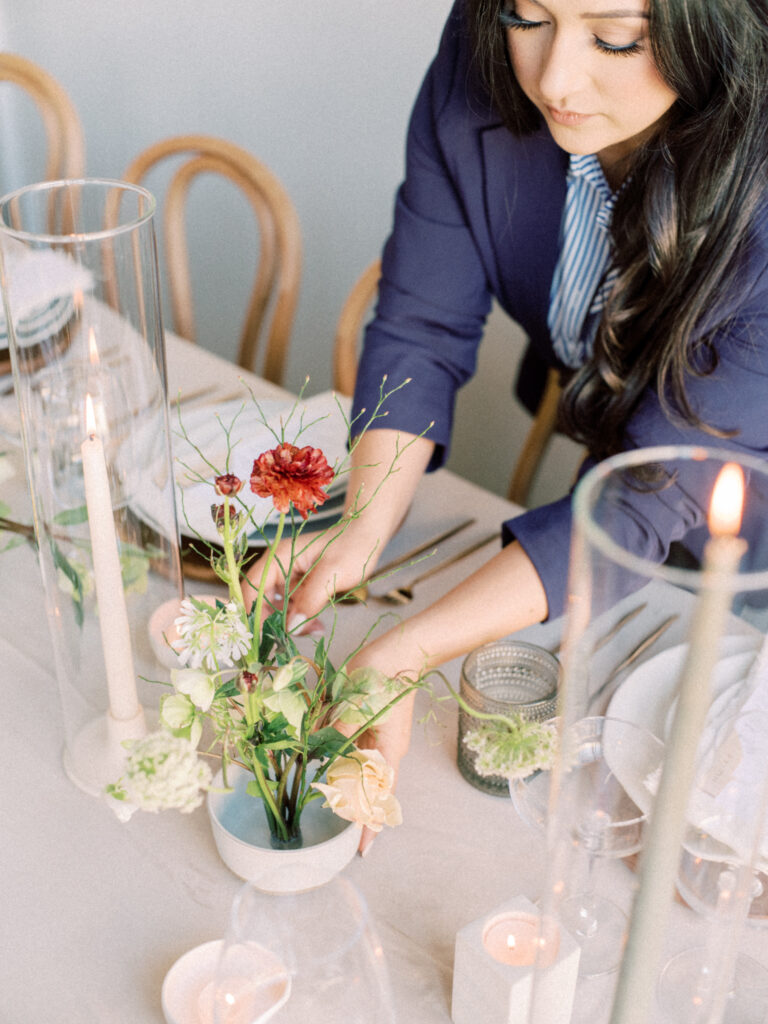
Why Hire a Professional?
Whether you opt for coordination or full service, enlisting the help of a professional wedding planner is not a luxury – it’s an investment in your peace of mind and the success of your event.
Even if you’re a super-organized individual, the sheer number of moving parts on your wedding day is immense. Trying to manage vendors, troubleshoot unexpected issues, and still be fully present to enjoy your celebration is a recipe for stress.
A professional planner brings invaluable experience, vendor relationships, and a calm, objective perspective. They can anticipate potential problems, handle logistics seamlessly, and ensure you and your loved ones can truly relax and savor every moment.
Whether it’s ensuring the caterer arrives on time with the right order (coordination) or guiding you through the entire vendor selection process (full service), a planner is your advocate and your secret weapon for a truly successful and memorable wedding day. Choose the level of support that best fits your needs and enjoy the journey!
read this post
So, you’re engaged! Congratulations! As the excitement settles, the planning begins, and you’ll quickly encounter a cast of characters ready to help bring your dream wedding to life. Two key players you’ll interact with are the venue manager and your hired wedding planner. While both are essential, their roles and responsibilities differ significantly. Understanding these distinctions will empower you to build the perfect support system for your big day.
Think of your venue manager as the captain of the ship – the ship being their specific venue. They are your go-to person for everything related to the venue itself. Their primary focus is ensuring the smooth operation of their space and adhering to the venue’s policies.
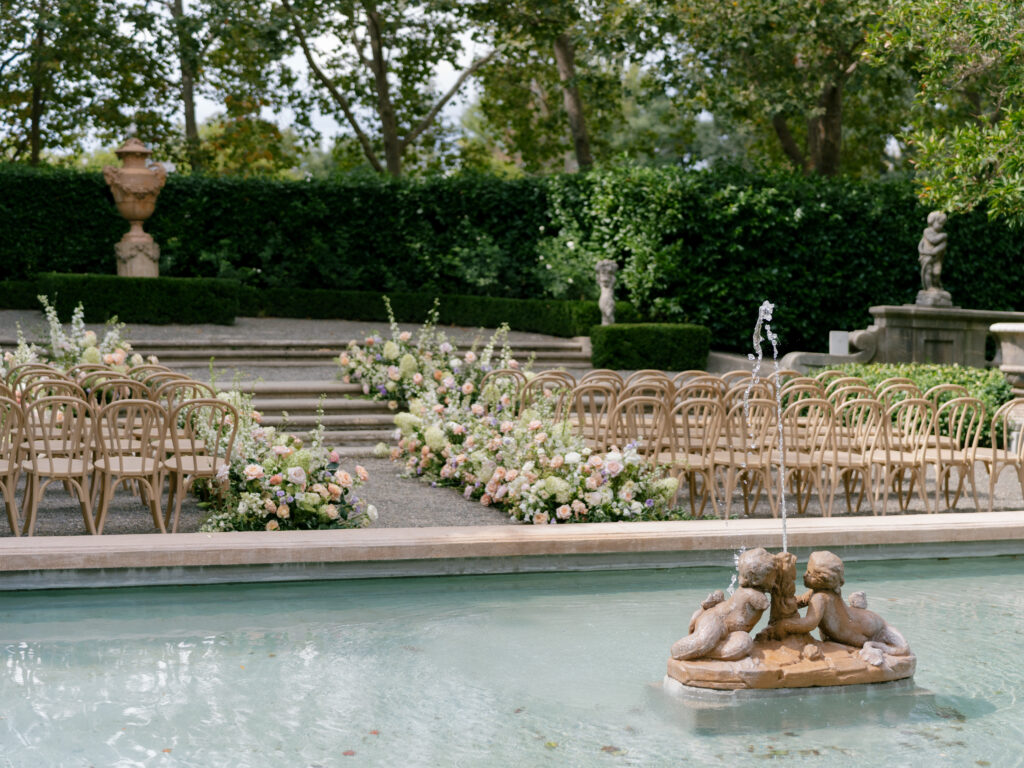
What Your Venue Manager Typically Handles:
- Venue Logistics: They’ll manage aspects like setup and breakdown of venue-provided items (tables, chairs, linens, sometimes basic décor), coordinate with their in-house staff (catering, bartenders, security), and oversee the venue’s timeline.
- Venue Rules and Regulations: They’ll ensure you and your vendors adhere to the venue’s policies regarding noise levels, setup times, alcohol service, and other specific rules.
- Venue Amenities: They’ll be your point of contact for utilizing the venue’s amenities, such as restrooms, parking, and sometimes audio-visual equipment.
- In-House Services: If the venue offers in-house catering or bar services, the venue manager will often oversee these aspects.
- Venue Walkthroughs: They’ll conduct site visits to familiarize you with the space and discuss how the venue can accommodate your vision within its existing framework.
However, the venue manager’s responsibilities generally begin and end with the venue. They are not typically involved in the broader planning aspects of your wedding. This is where your hired wedding planner steps in.
Your wedding planner is your personal advocate, your organizational guru, and your creative partner throughout the entire wedding journey. They work solely for you, the couple, and their focus is on bringing your unique vision to life, regardless of the venue.
What Your Hired Wedding Planner Typically Handles:
- Comprehensive Planning: From initial concept development and budget management to vendor selection and contract negotiation, they guide you through every step of the planning process.
- Vendor Coordination: They’ll research, recommend, and manage communication with all external vendors (florists, photographers, entertainment, transportation, etc.), ensuring everyone is on the same page.
- Budget Management: They’ll help you create and stick to your budget, track expenses, and ensure you’re getting the best value for your money.
- Timeline Creation and Management: They’ll develop a detailed wedding day timeline and ensure everyone adheres to it, keeping the day flowing smoothly.
- Décor and Design: They can assist with the overall aesthetic of your wedding, offering creative ideas and coordinating with décor vendors.
- Guest Management: They can handle RSVP tracking, seating charts, and even accommodation logistics.
- Problem Solving: On the big day (and leading up to it), they’ll be your point person for any issues that arise, handling them discreetly and efficiently so you can relax and enjoy.
- Personalization: They focus on incorporating your personalities and preferences into every detail, making your wedding truly unique.
- Venue Liaison (from your perspective): While the venue manager represents the venue, your planner acts as a bridge, ensuring your needs and the venue’s requirements are aligned. They can advocate for your vision within the venue’s capabilities.
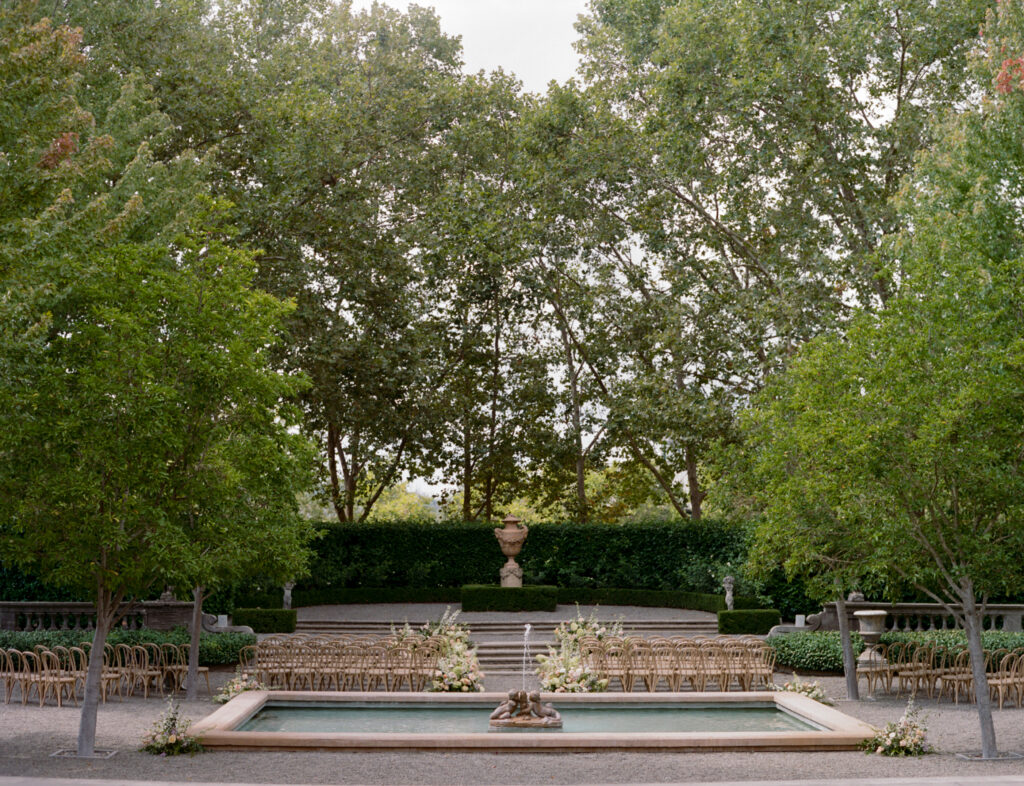
The Key Difference:
Think of it this way: the venue manager ensures the location functions flawlessly. The wedding planner ensures the entire wedding experience, from the moment you say “yes” to the last dance, is everything you’ve dreamed of.
Do You Need Both?
While some couples might feel they can handle the broader planning themselves, a hired wedding planner offers invaluable expertise, saves you countless hours and stress, and can often bring creative ideas and vendor relationships to the table that you wouldn’t have access to otherwise. Even if your venue offers an “event coordinator,” remember their primary loyalty lies with the venue, not solely with you.
Investing in a wedding planner allows you to be fully present and enjoy your engagement and wedding day, knowing that a dedicated professional is handling the intricate details behind the scenes. Together, the venue manager and your hired wedding planner form a powerful team, each playing a crucial role in making your wedding day a resounding success.
